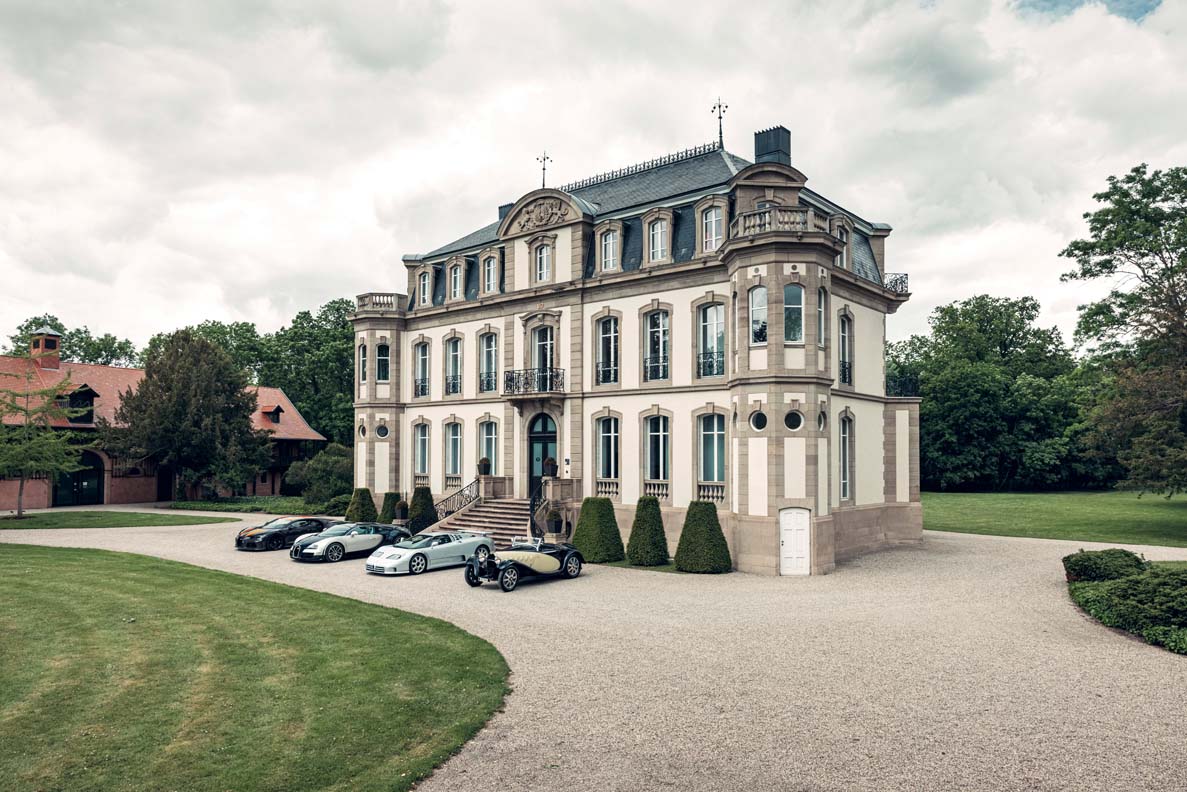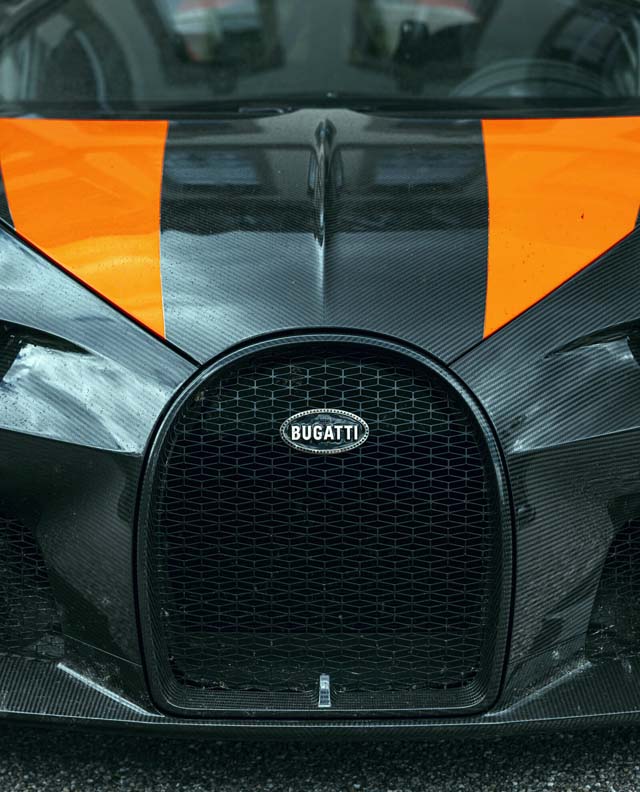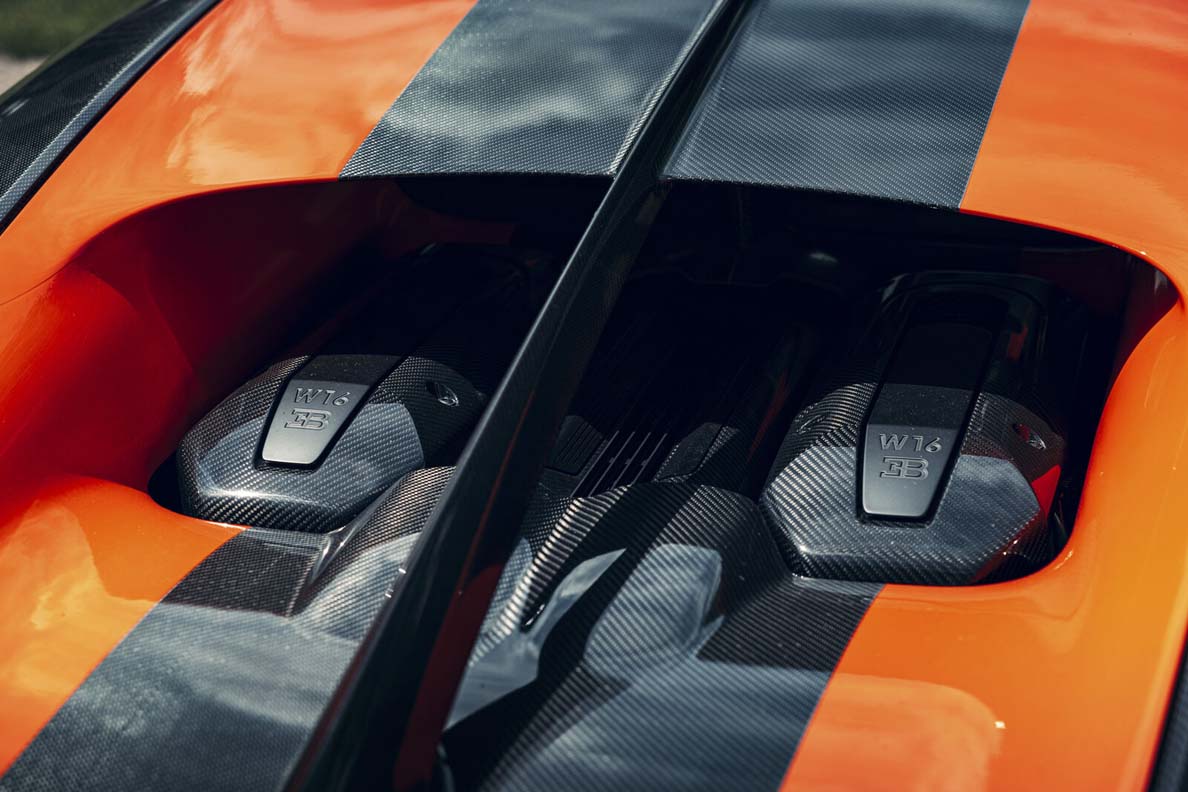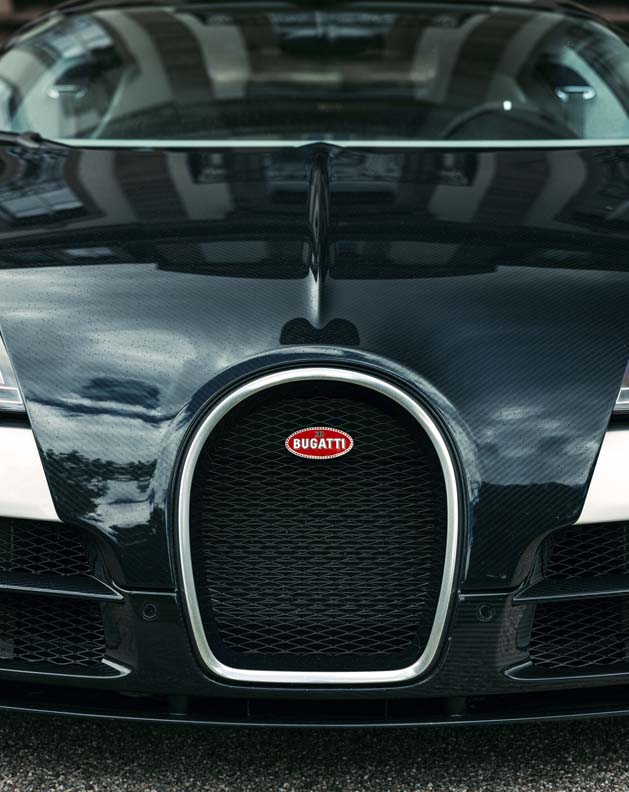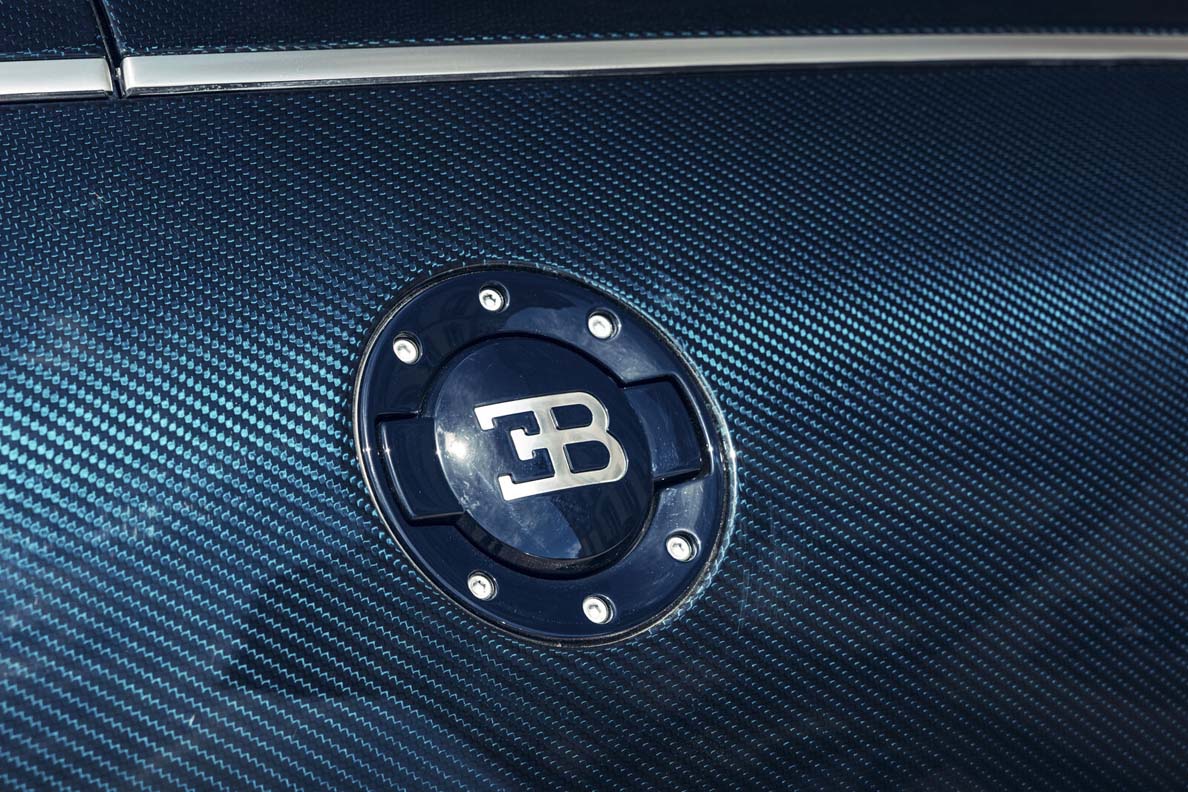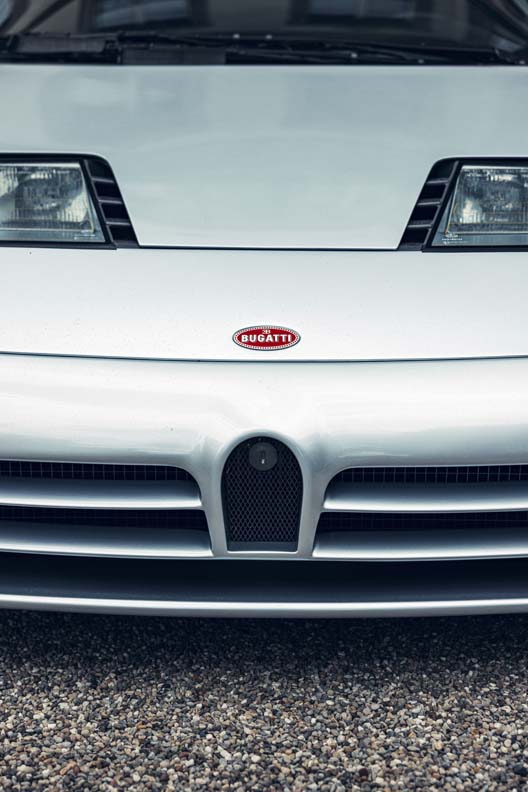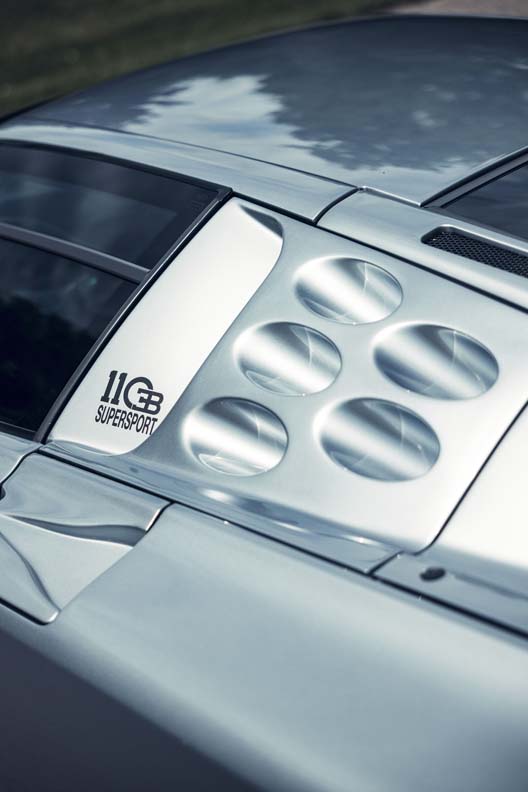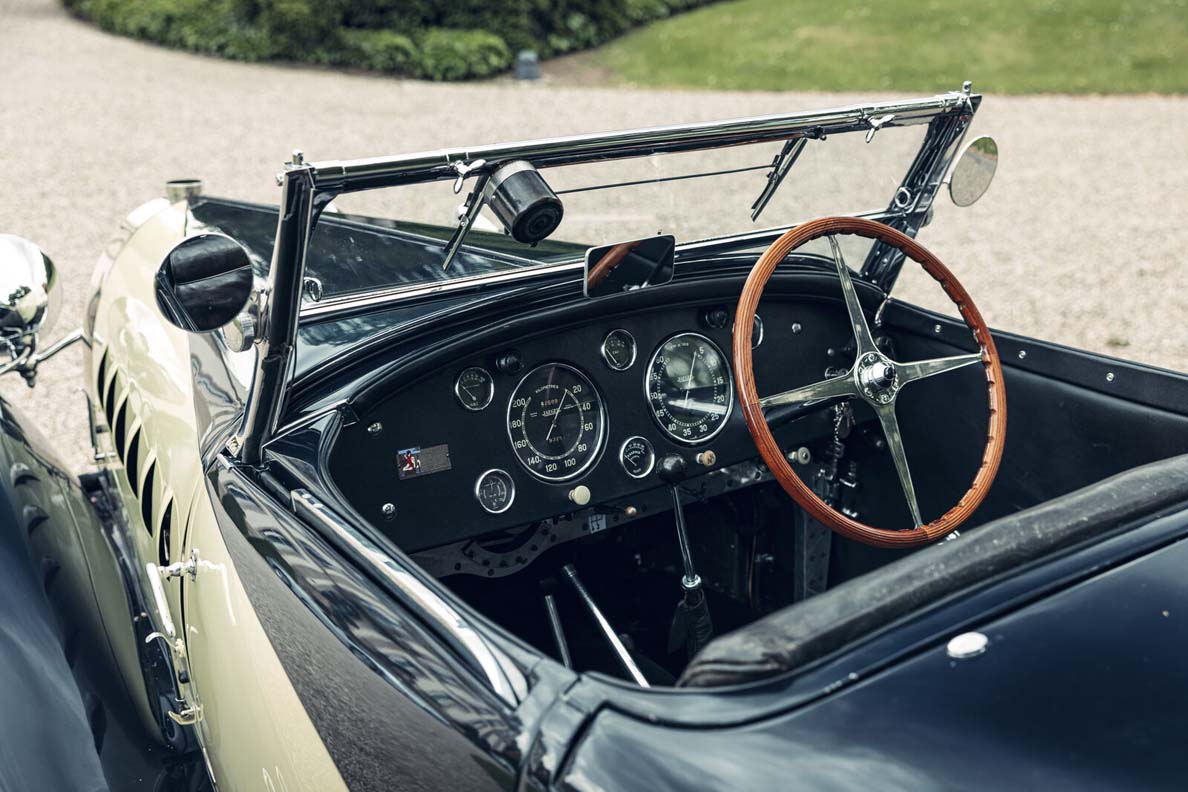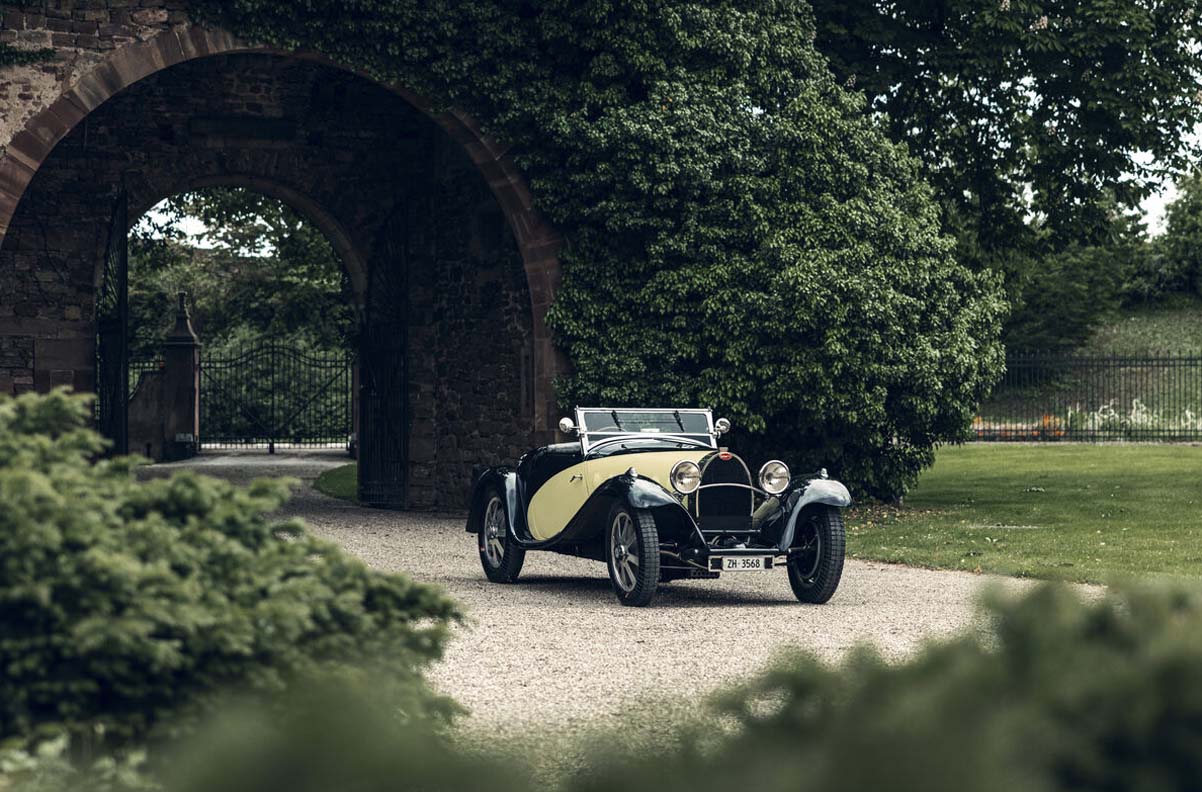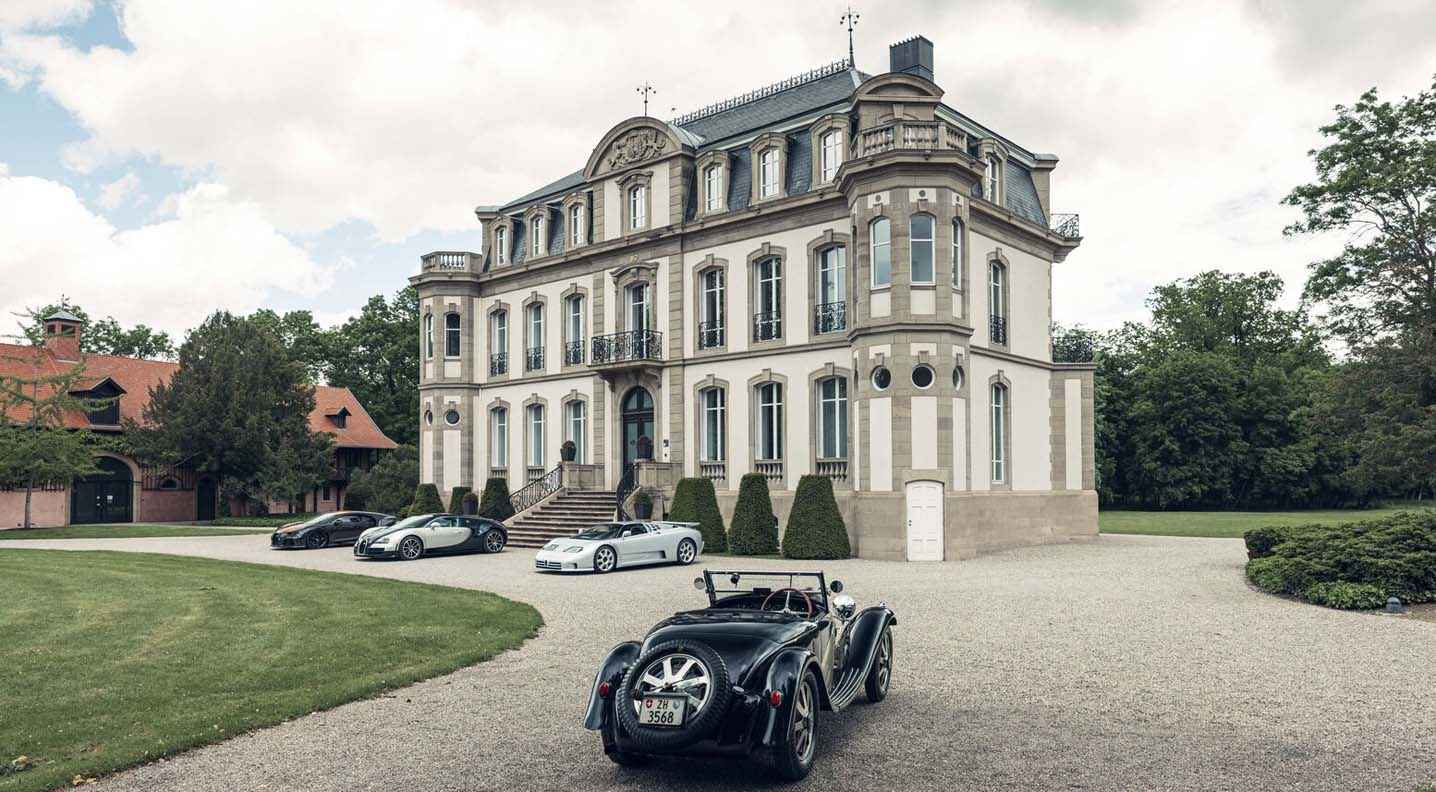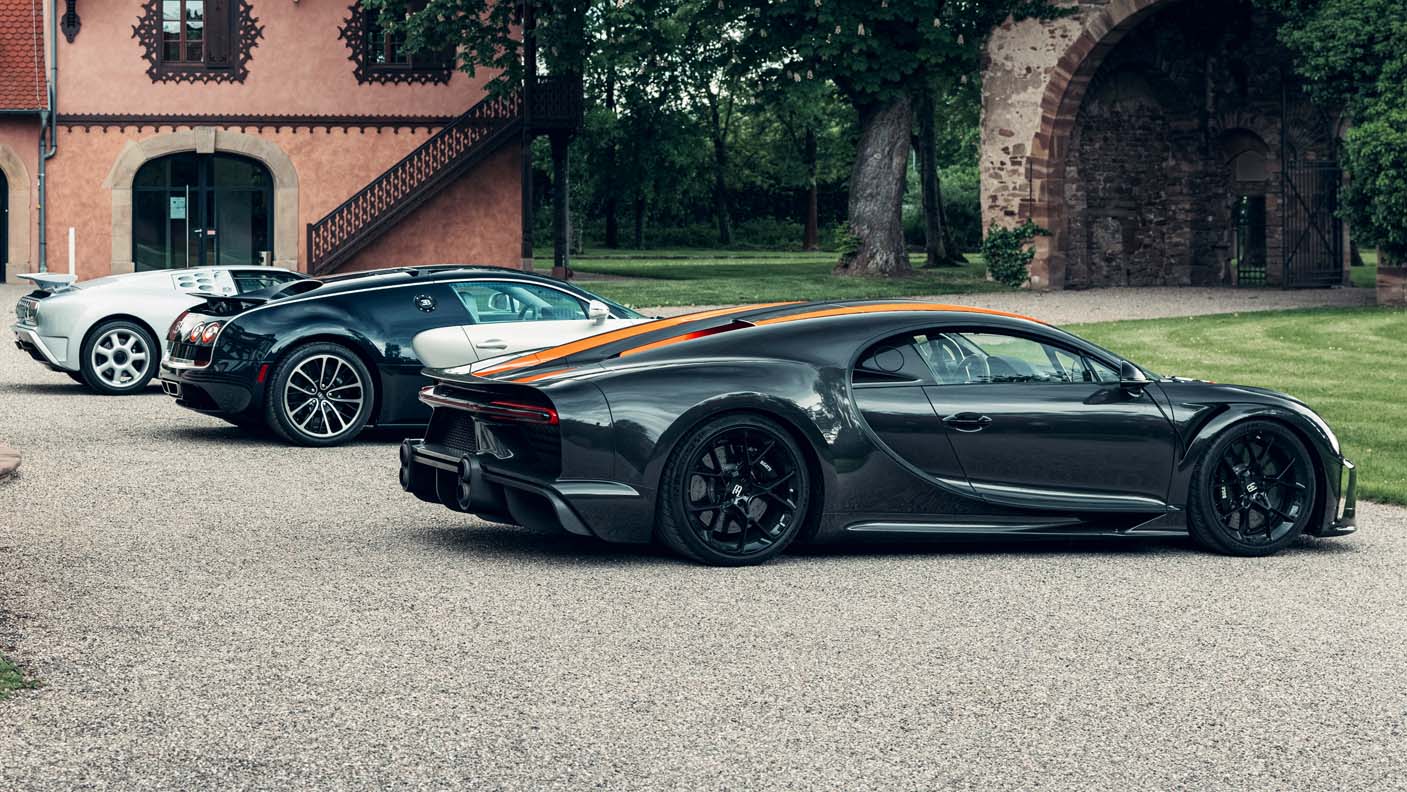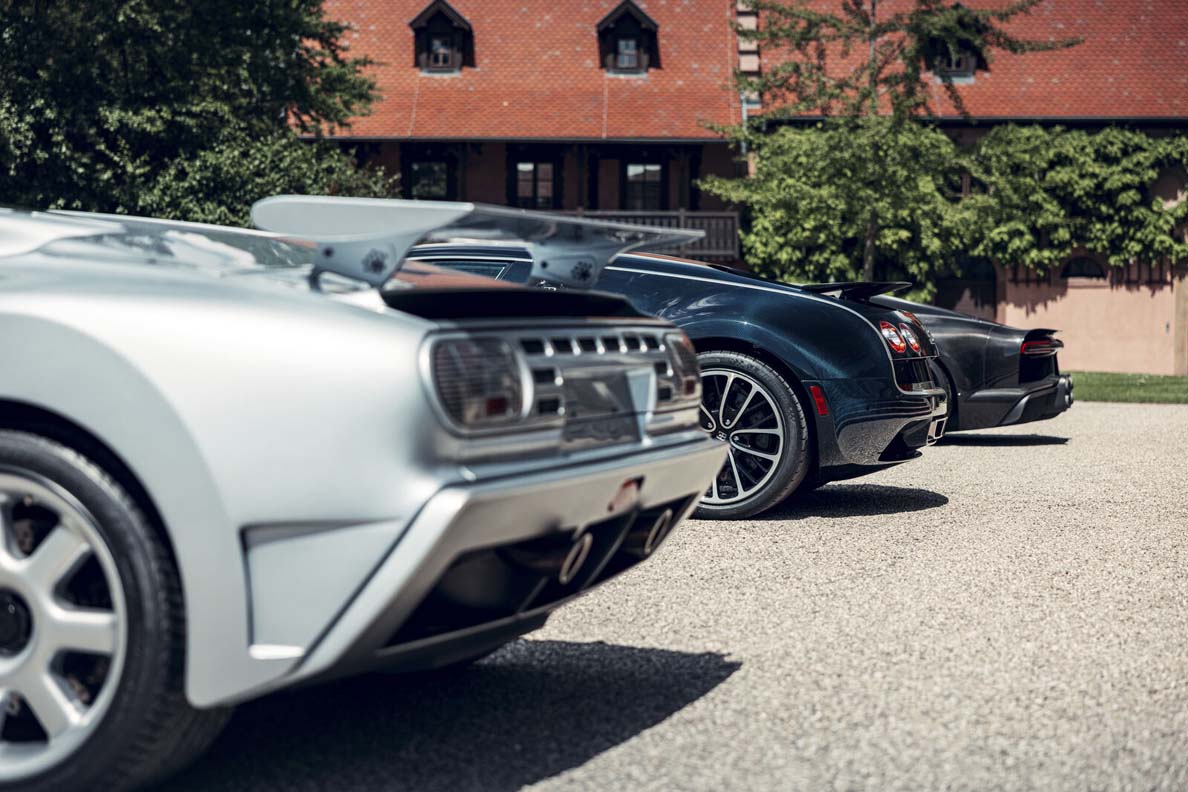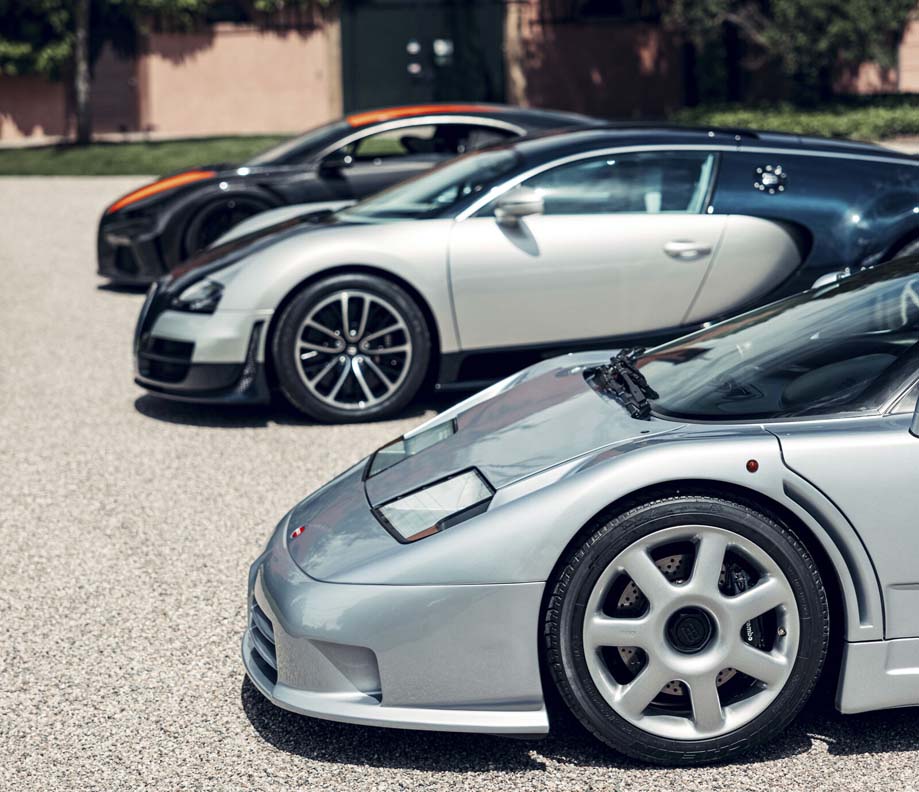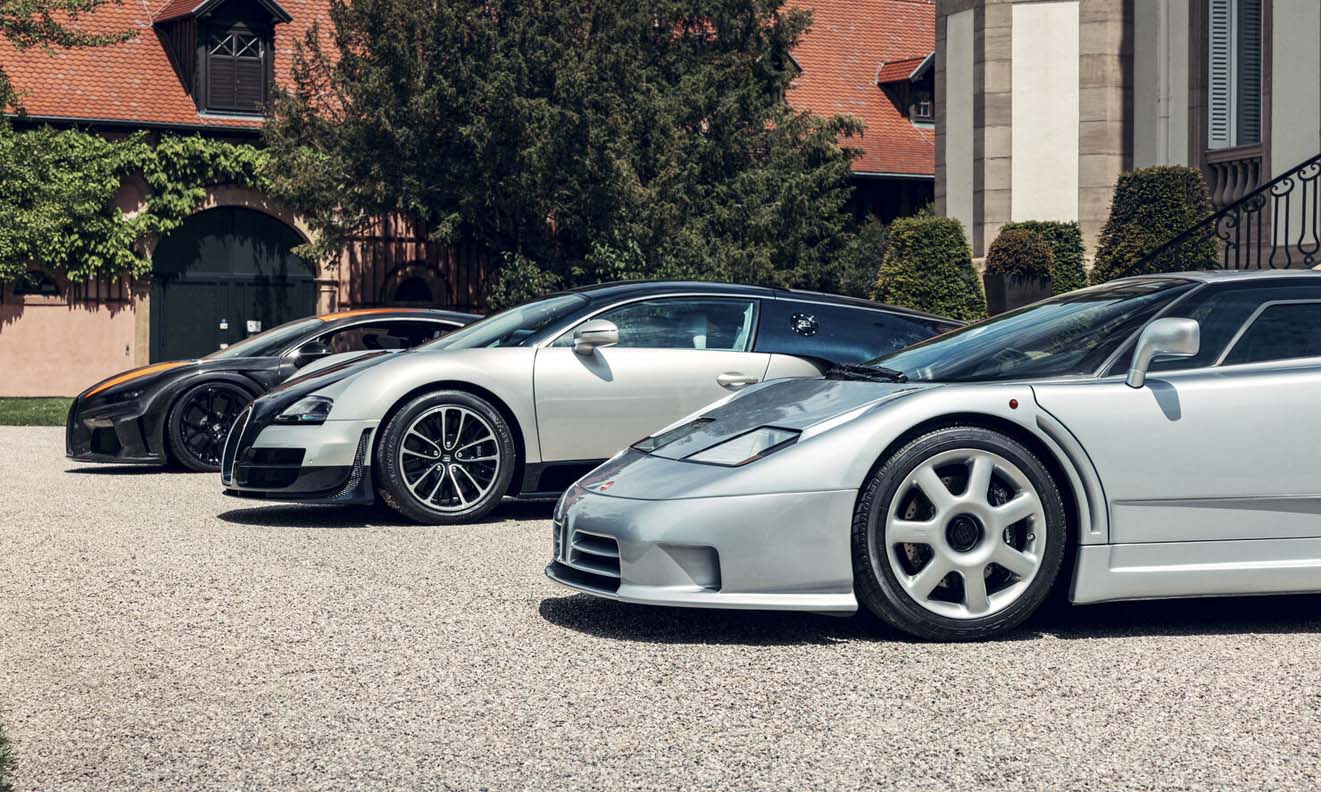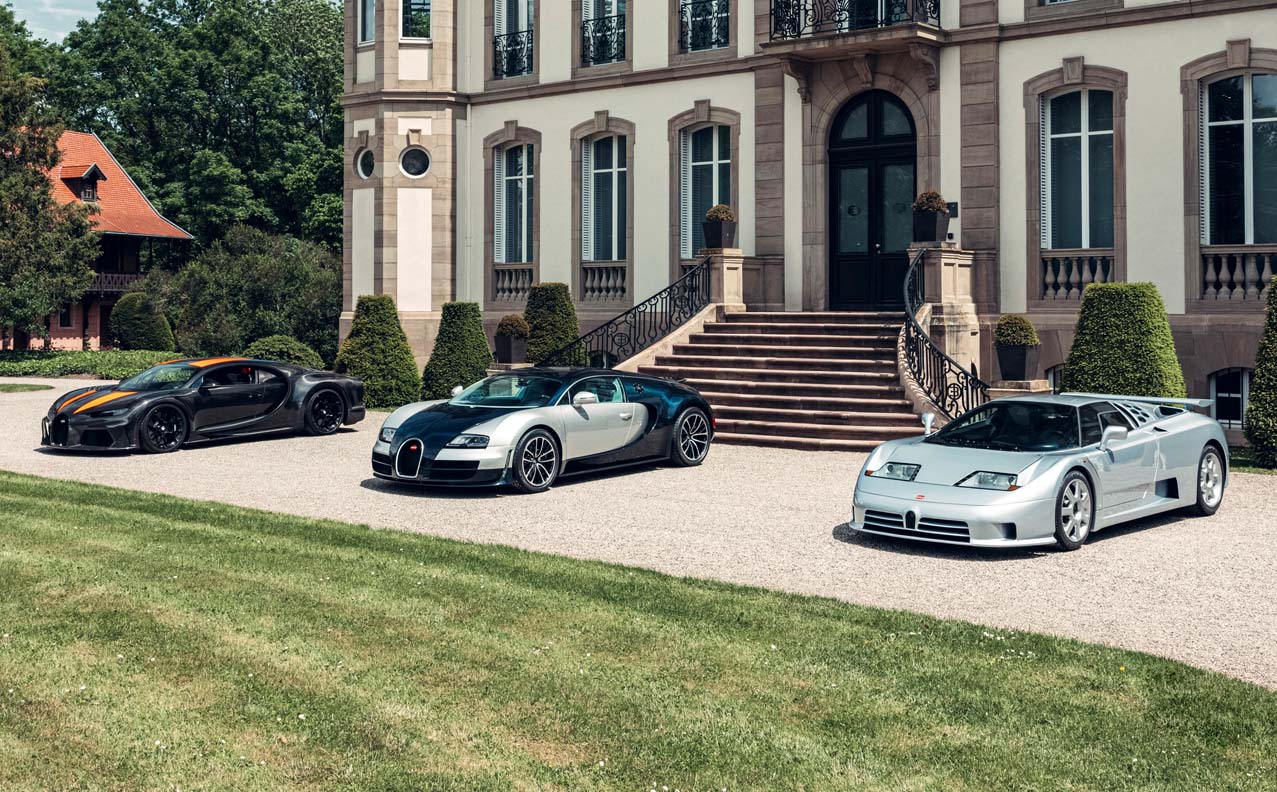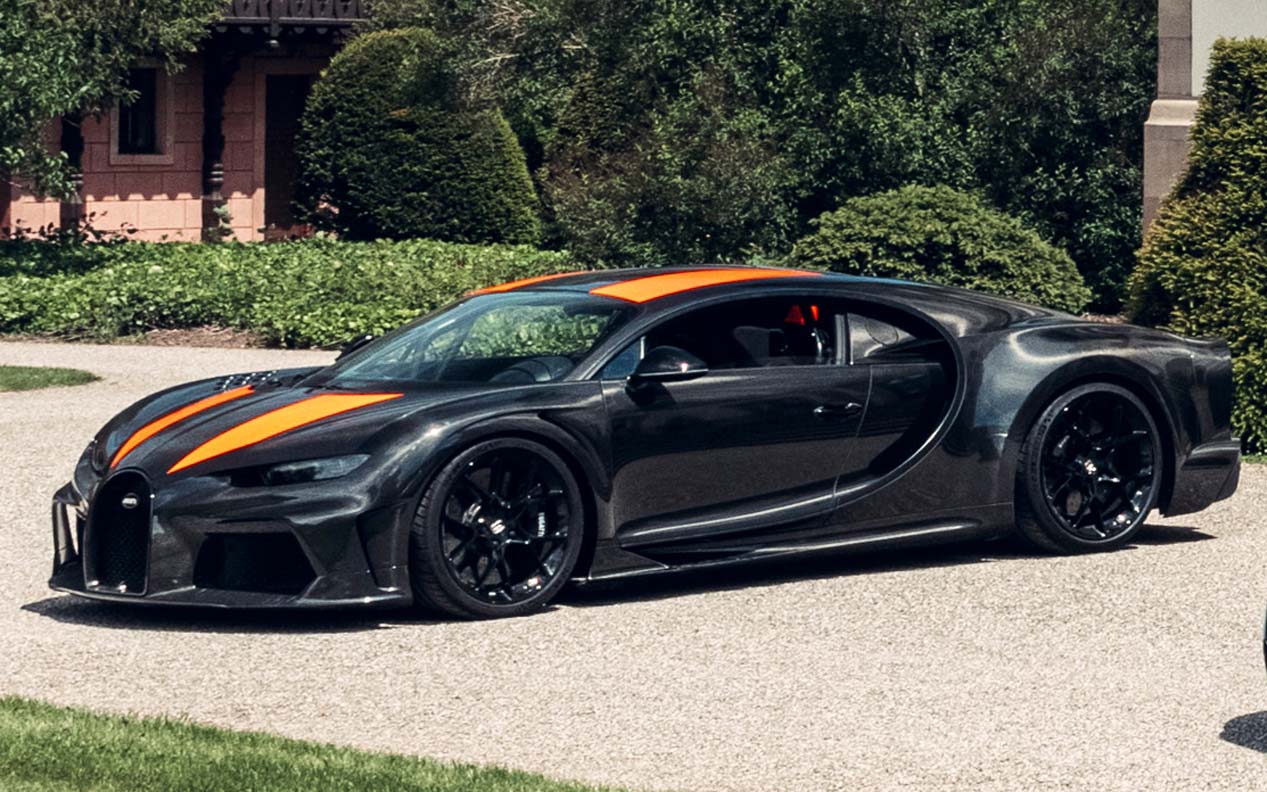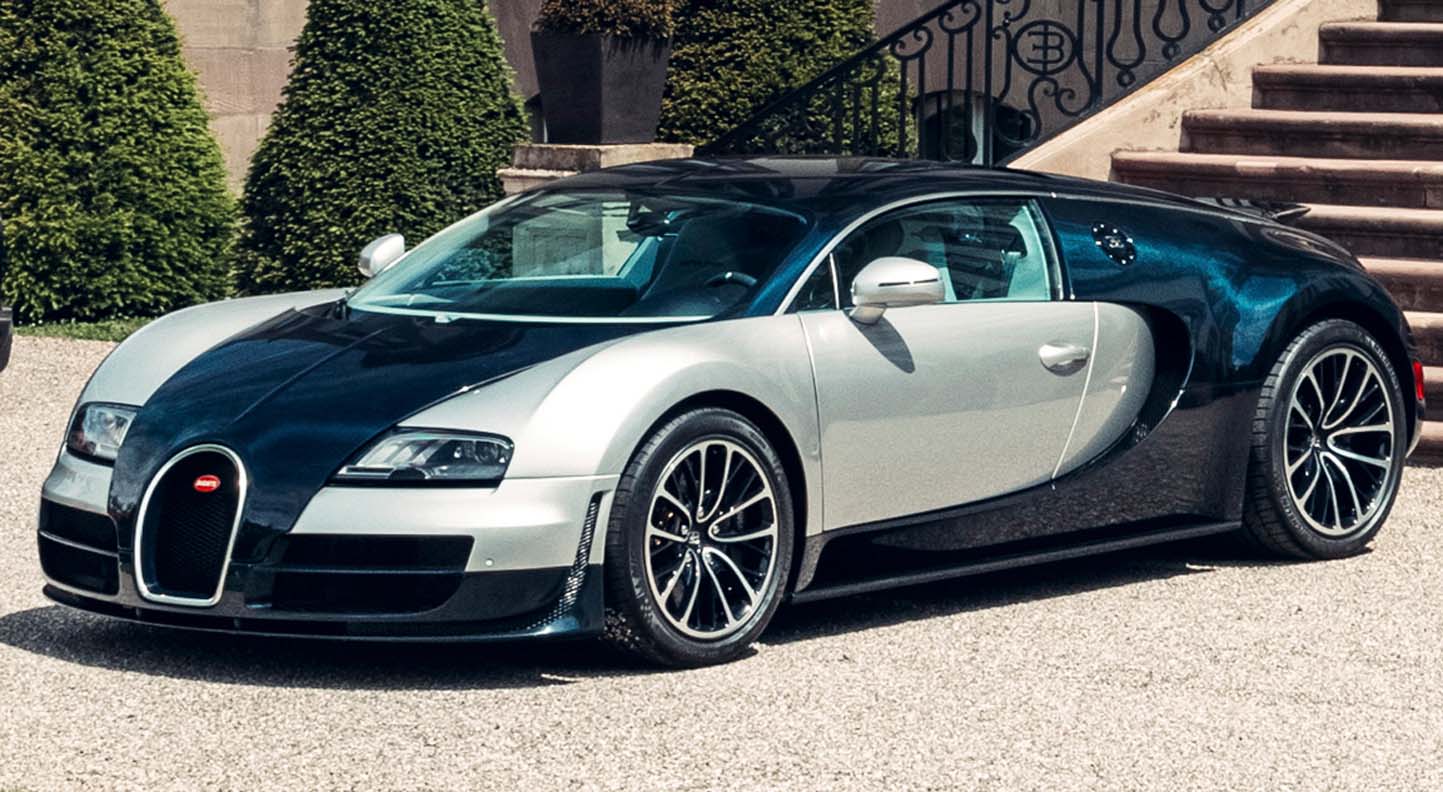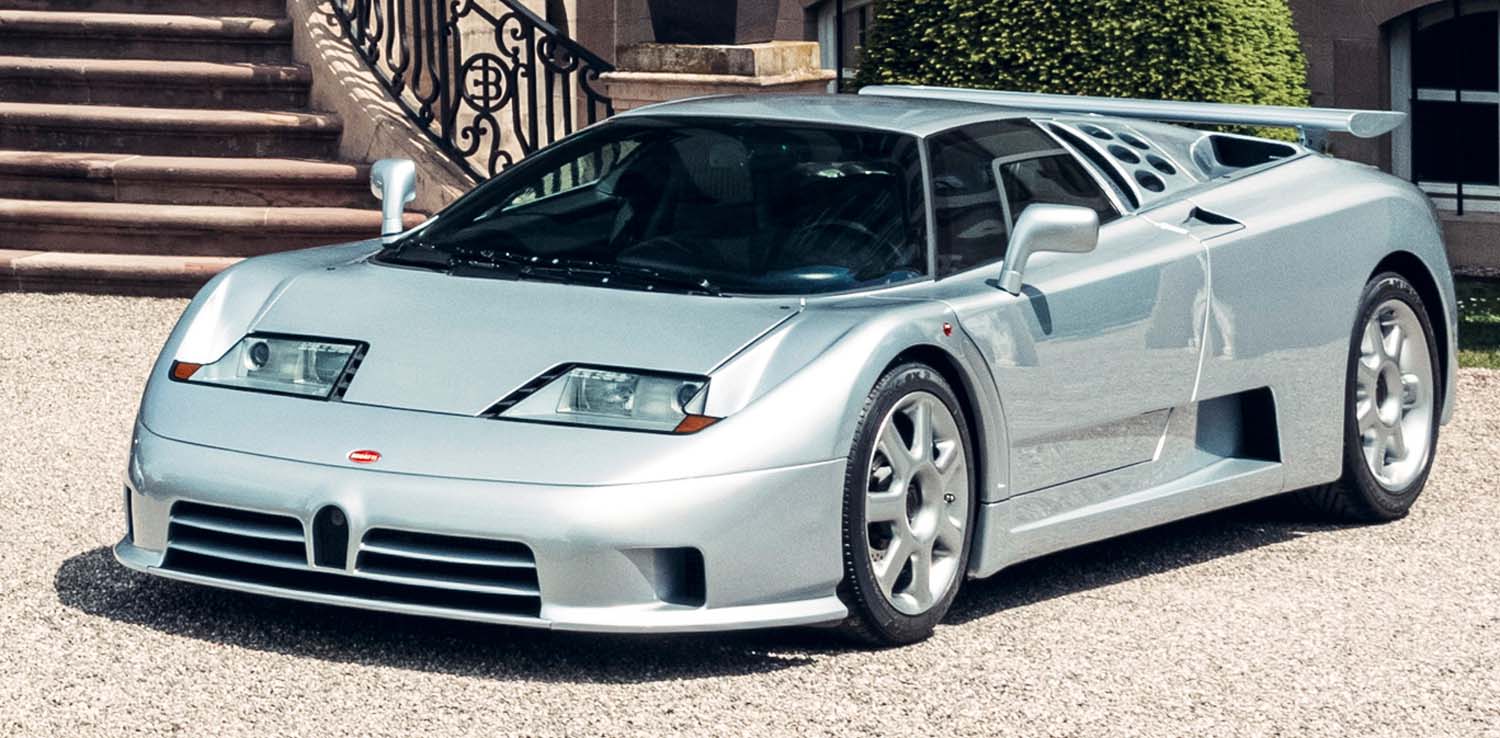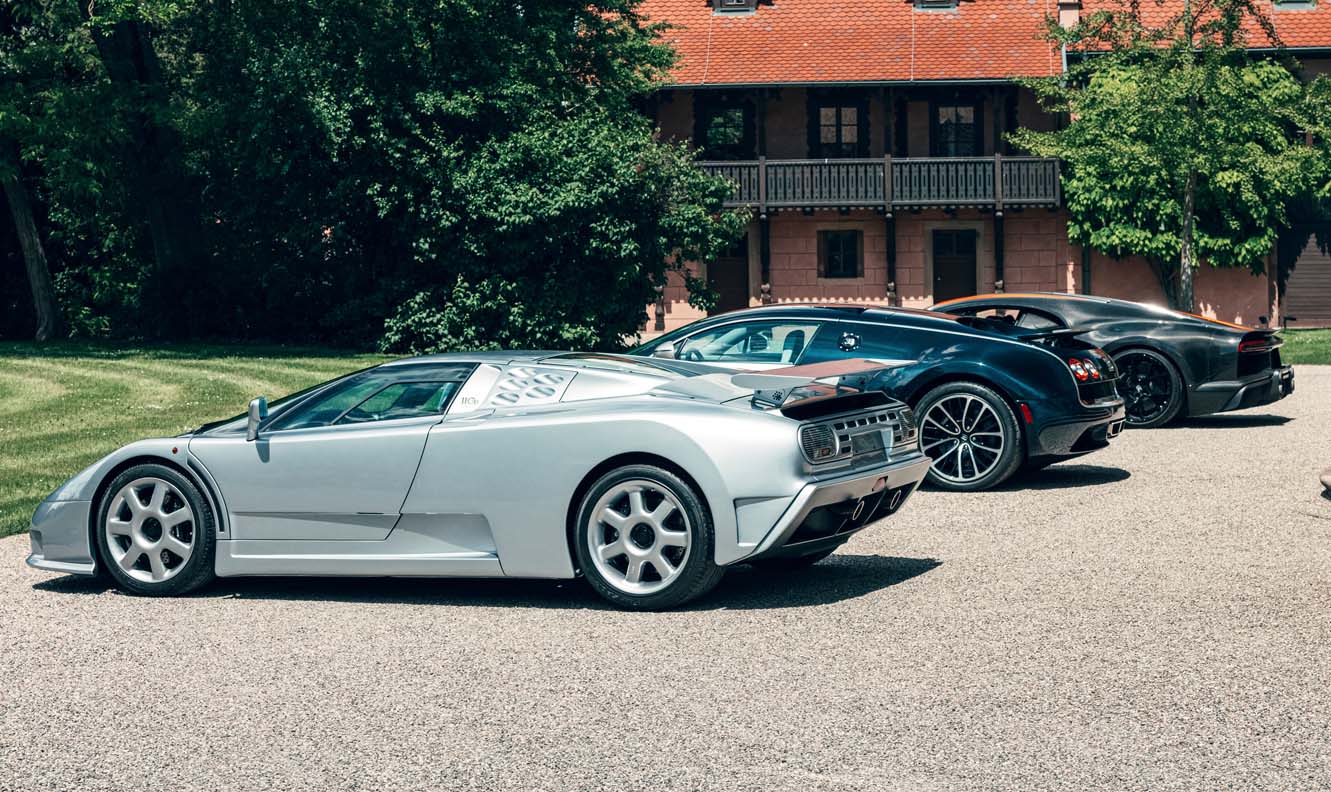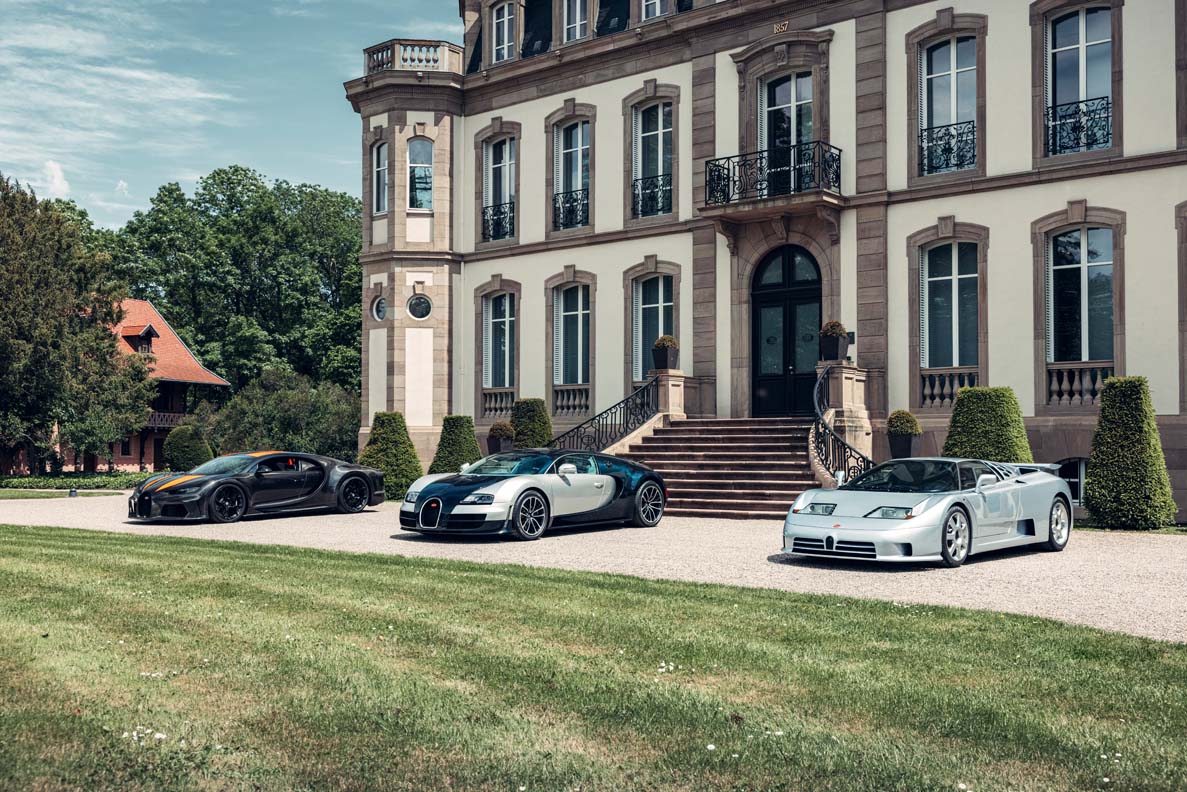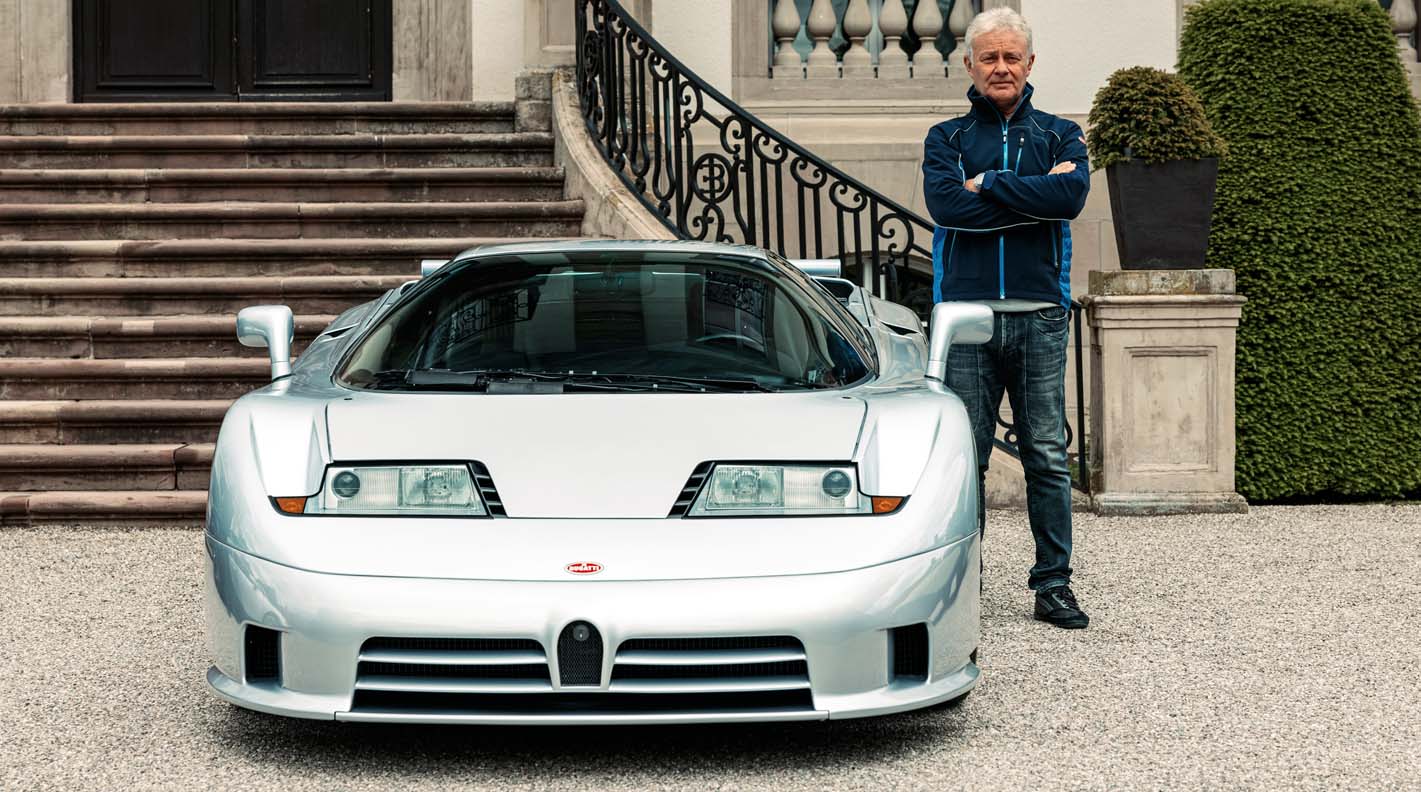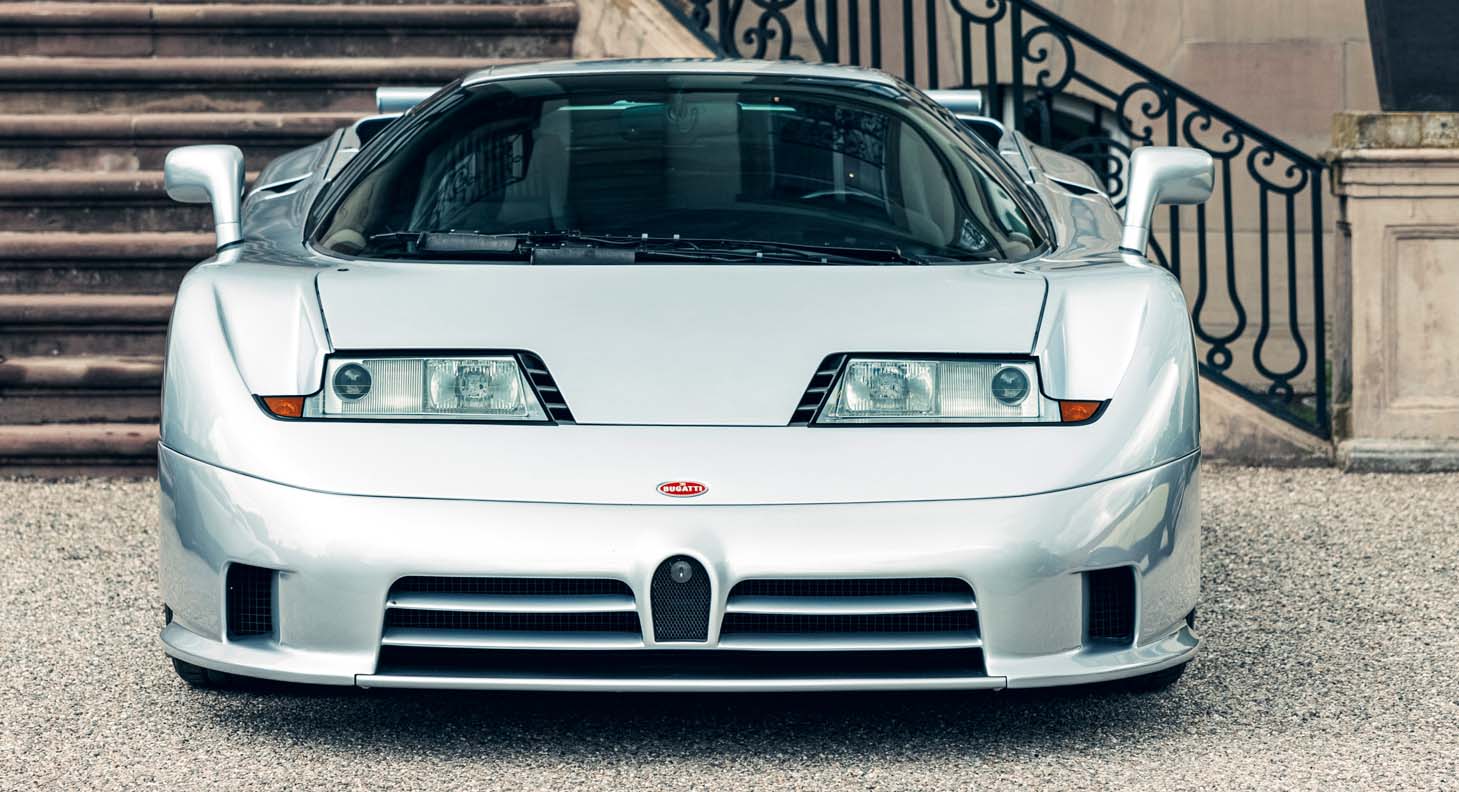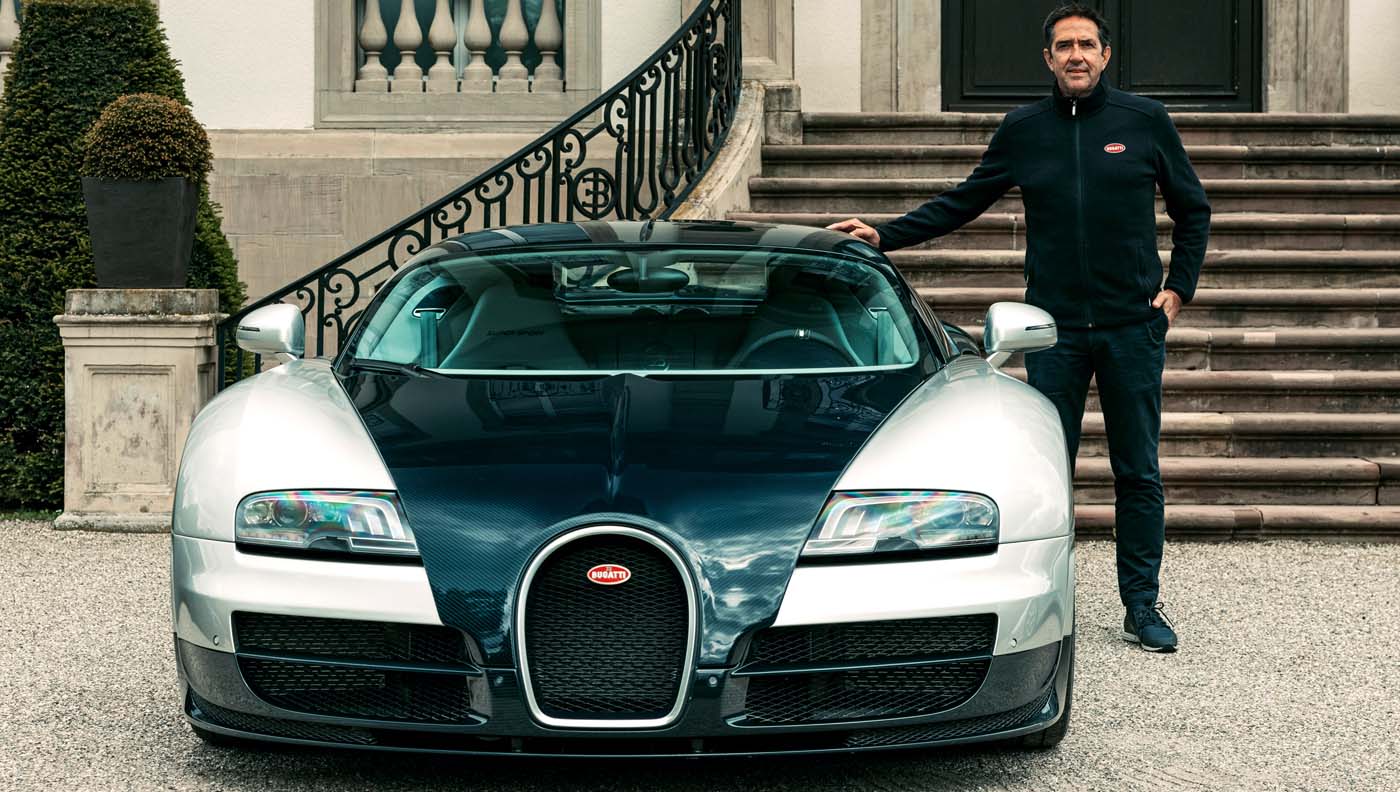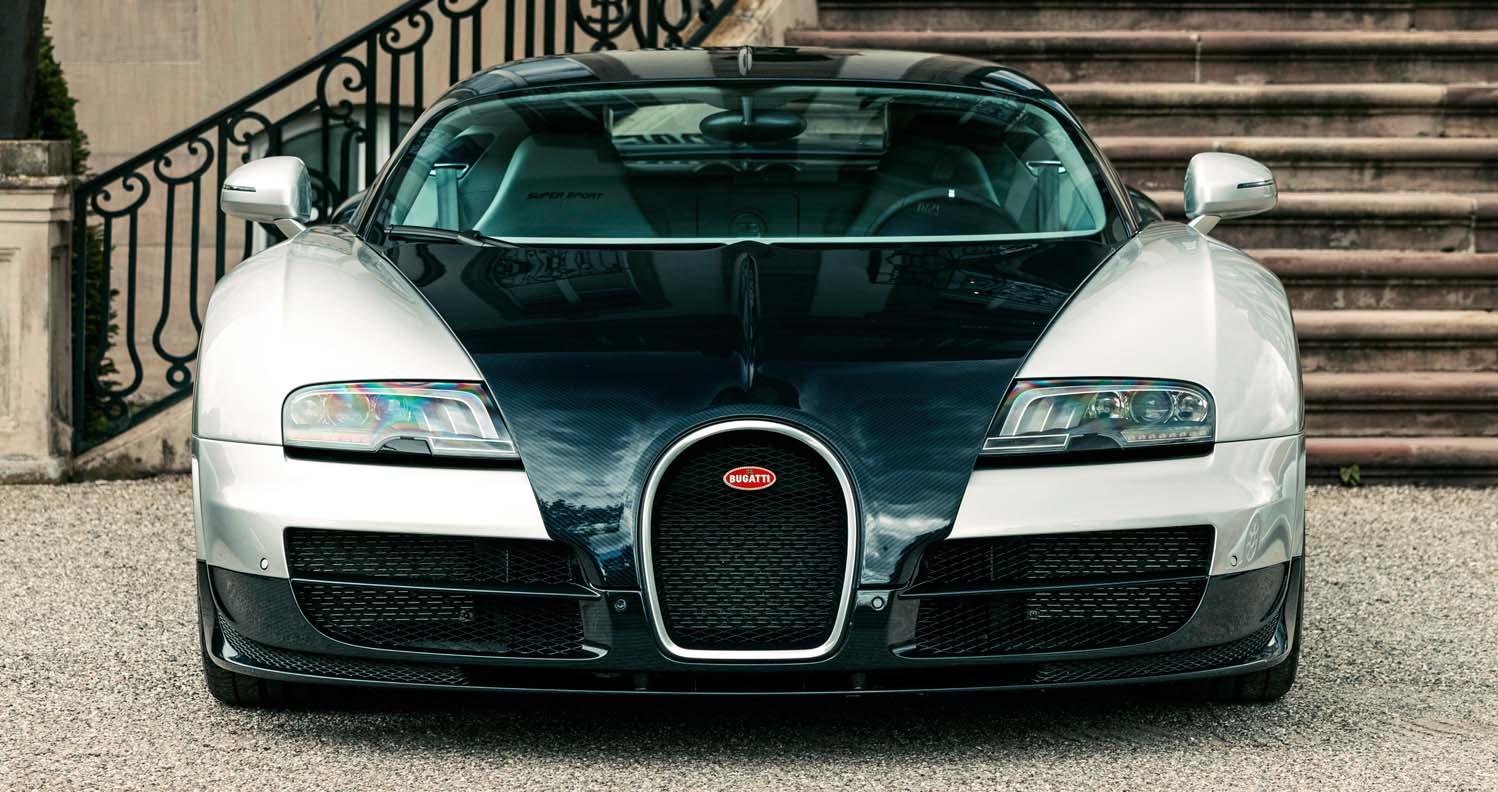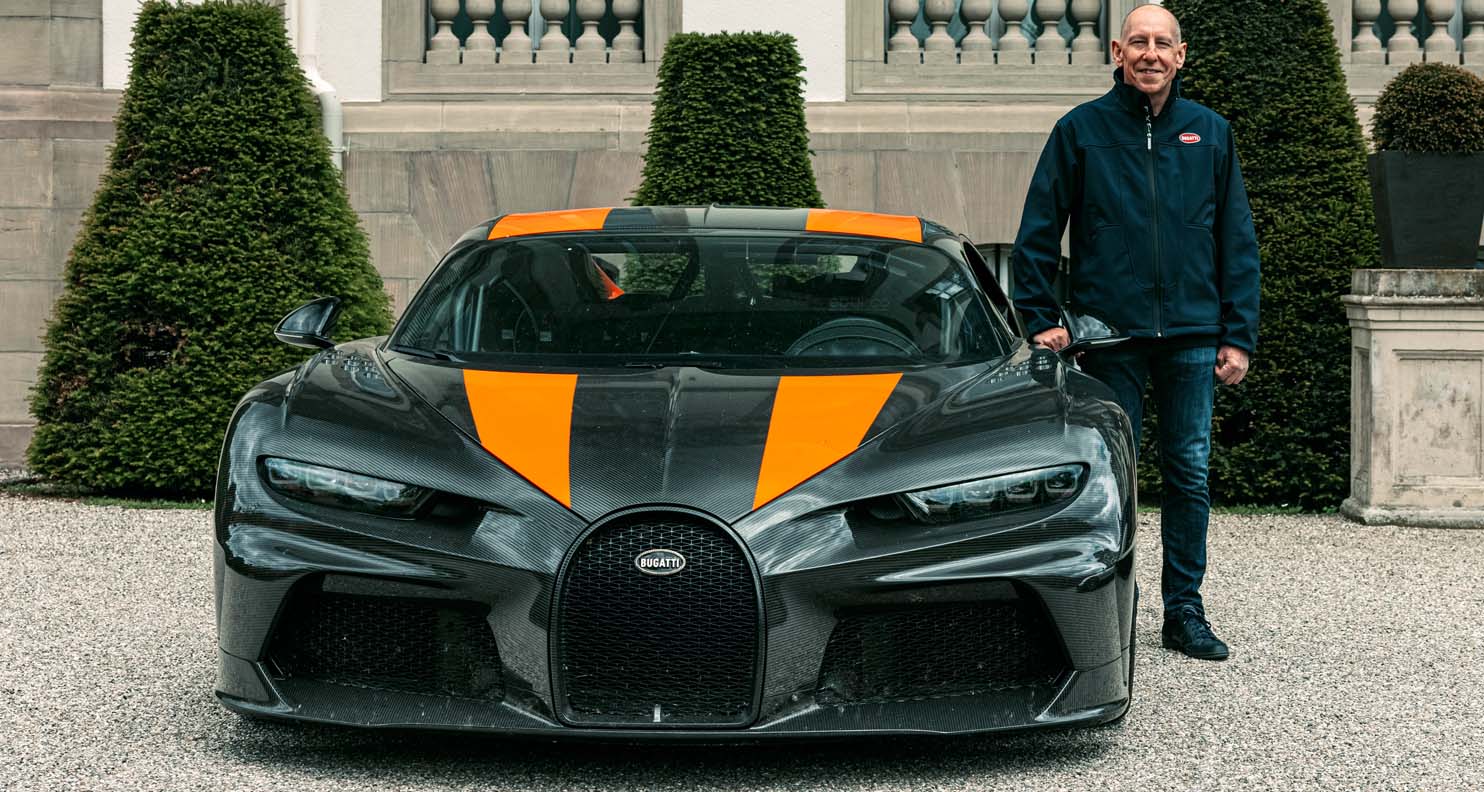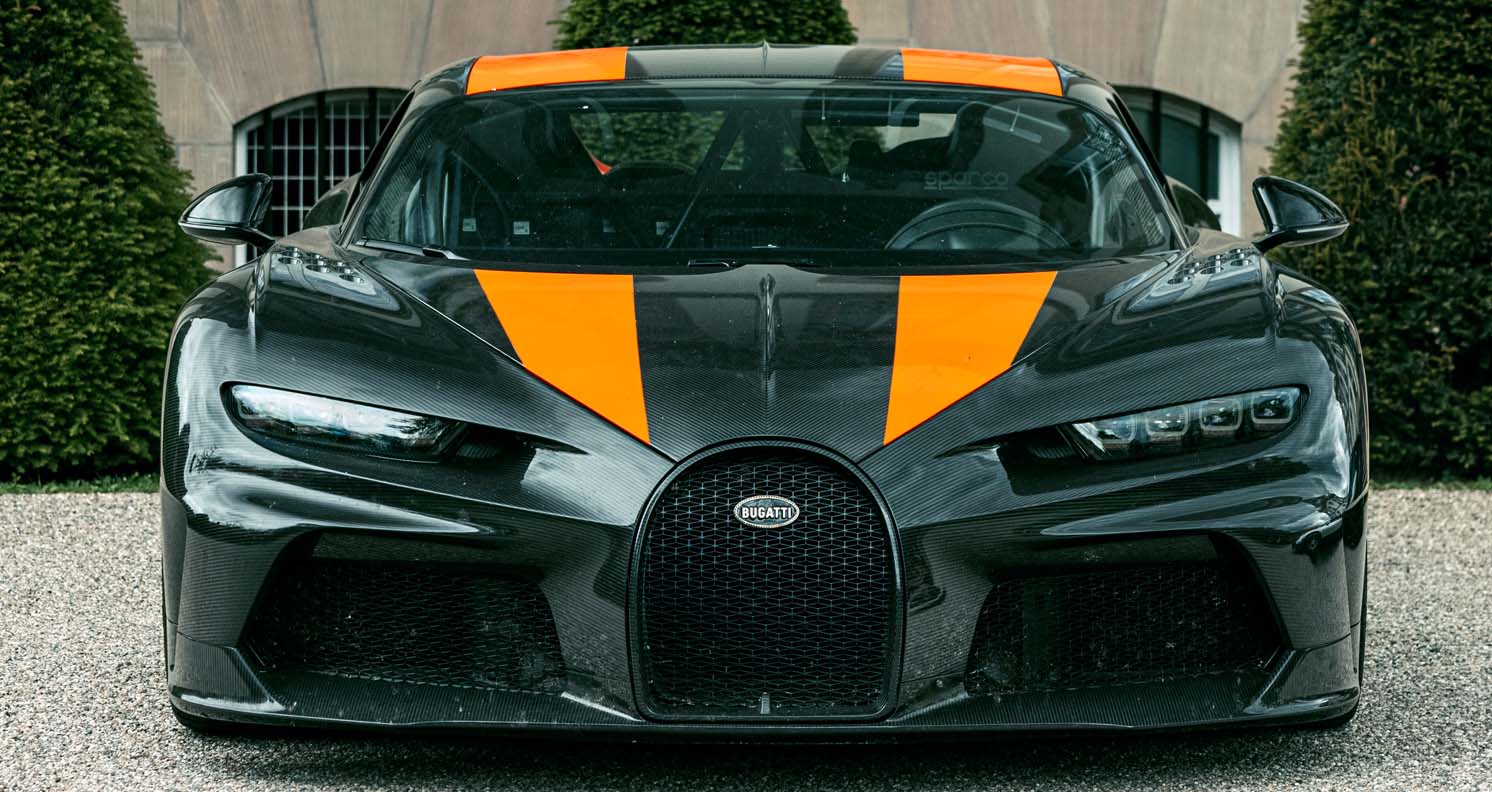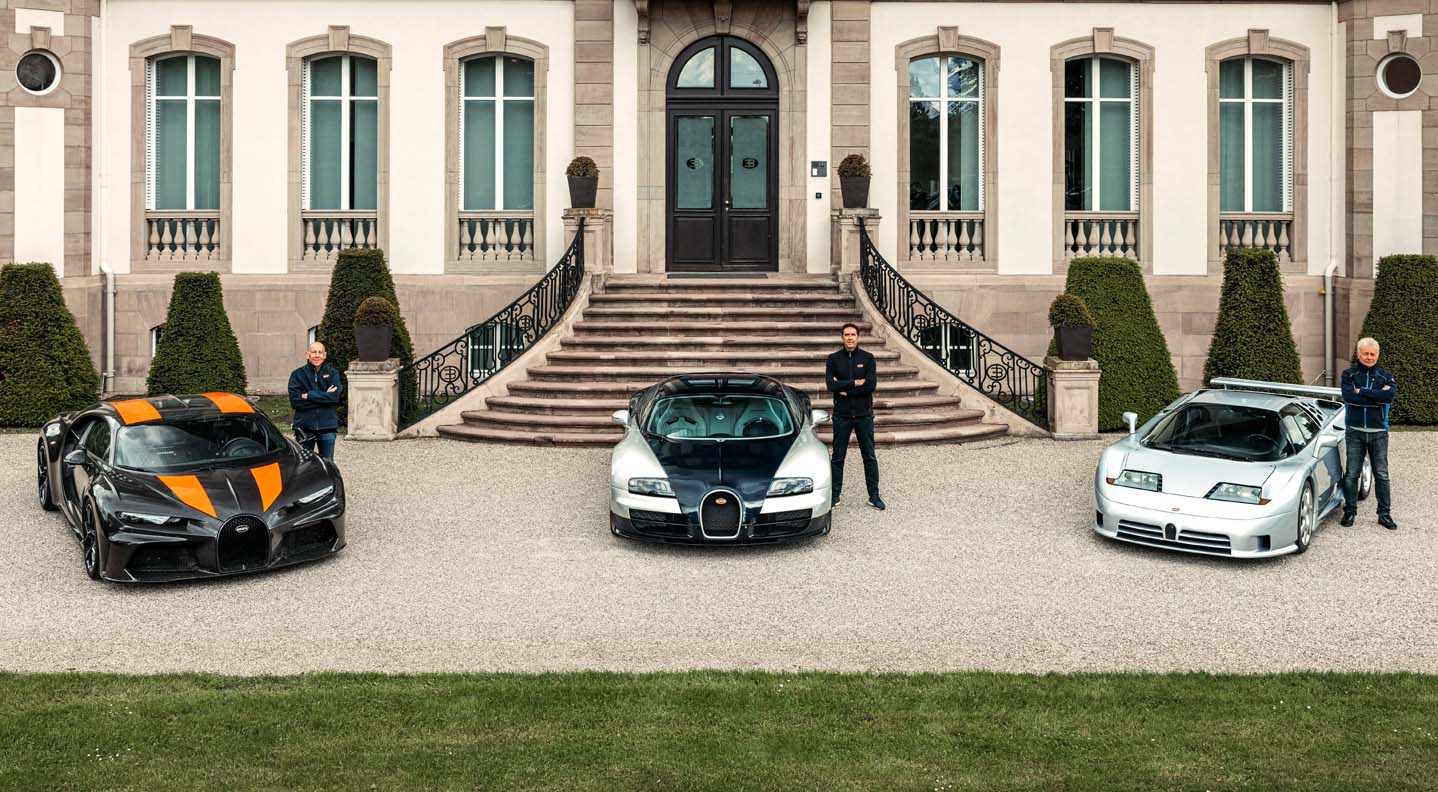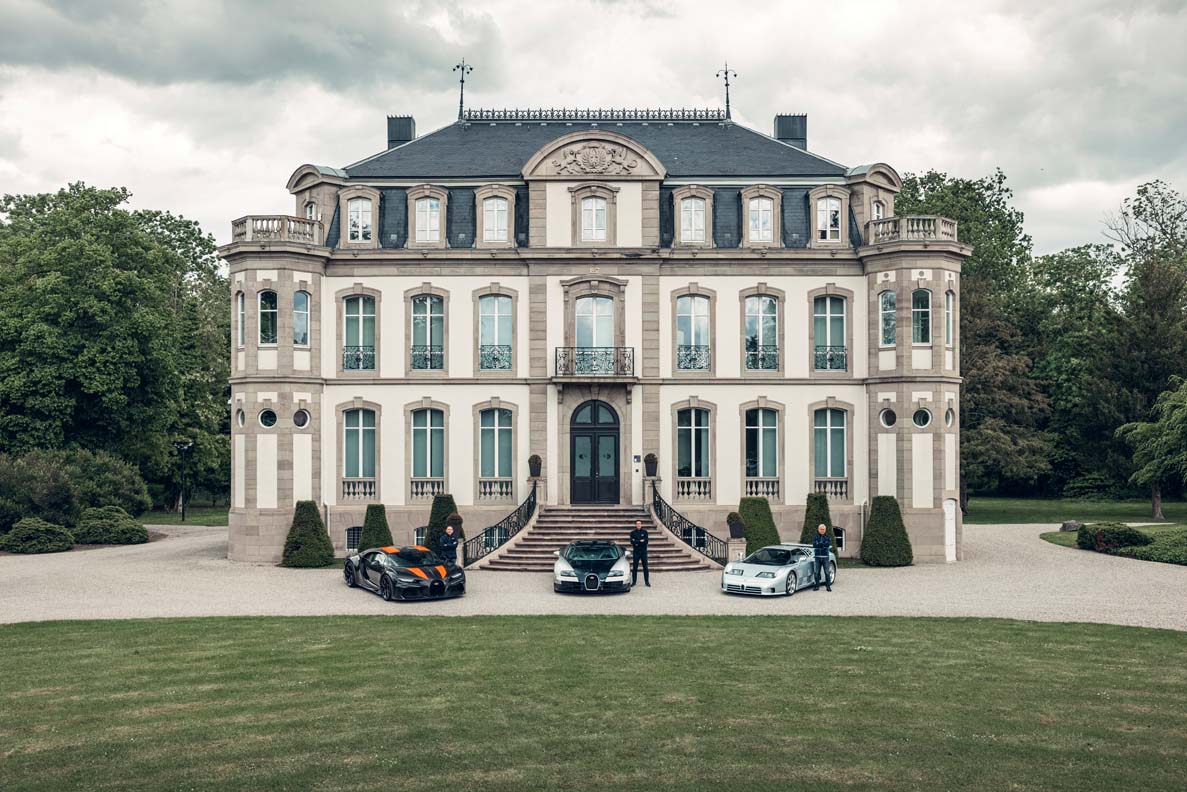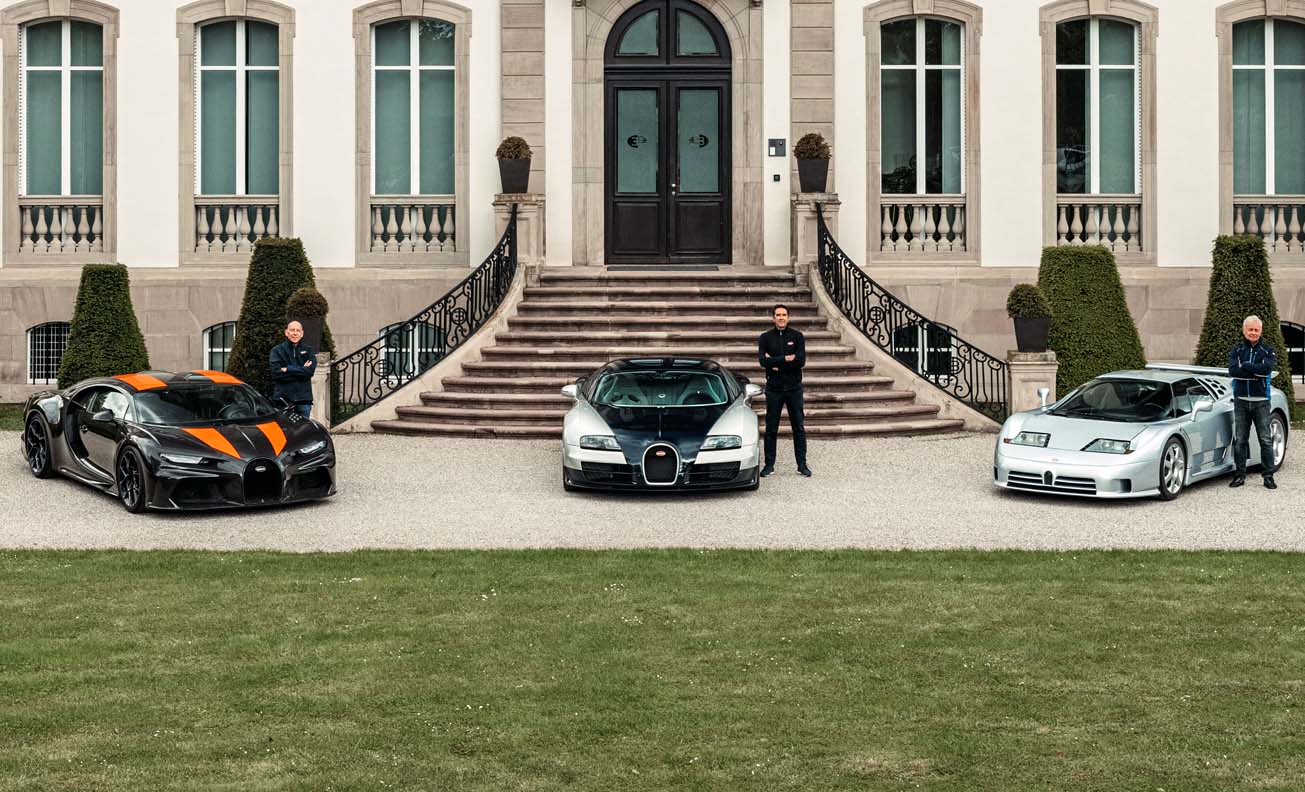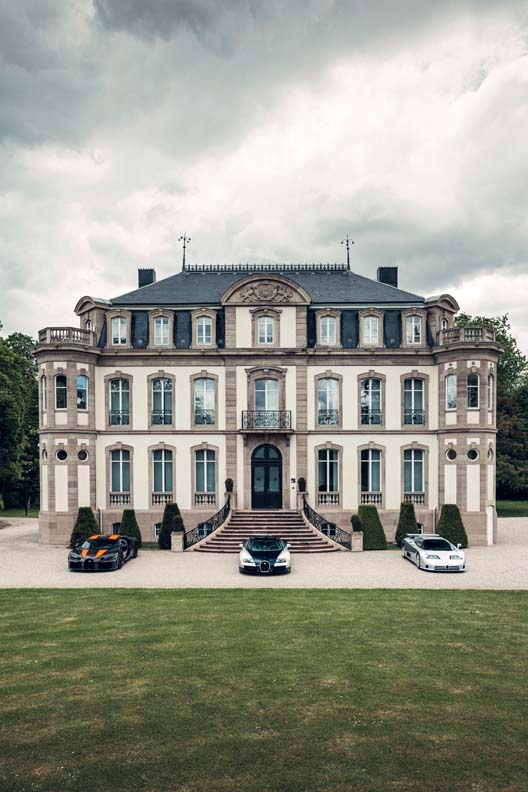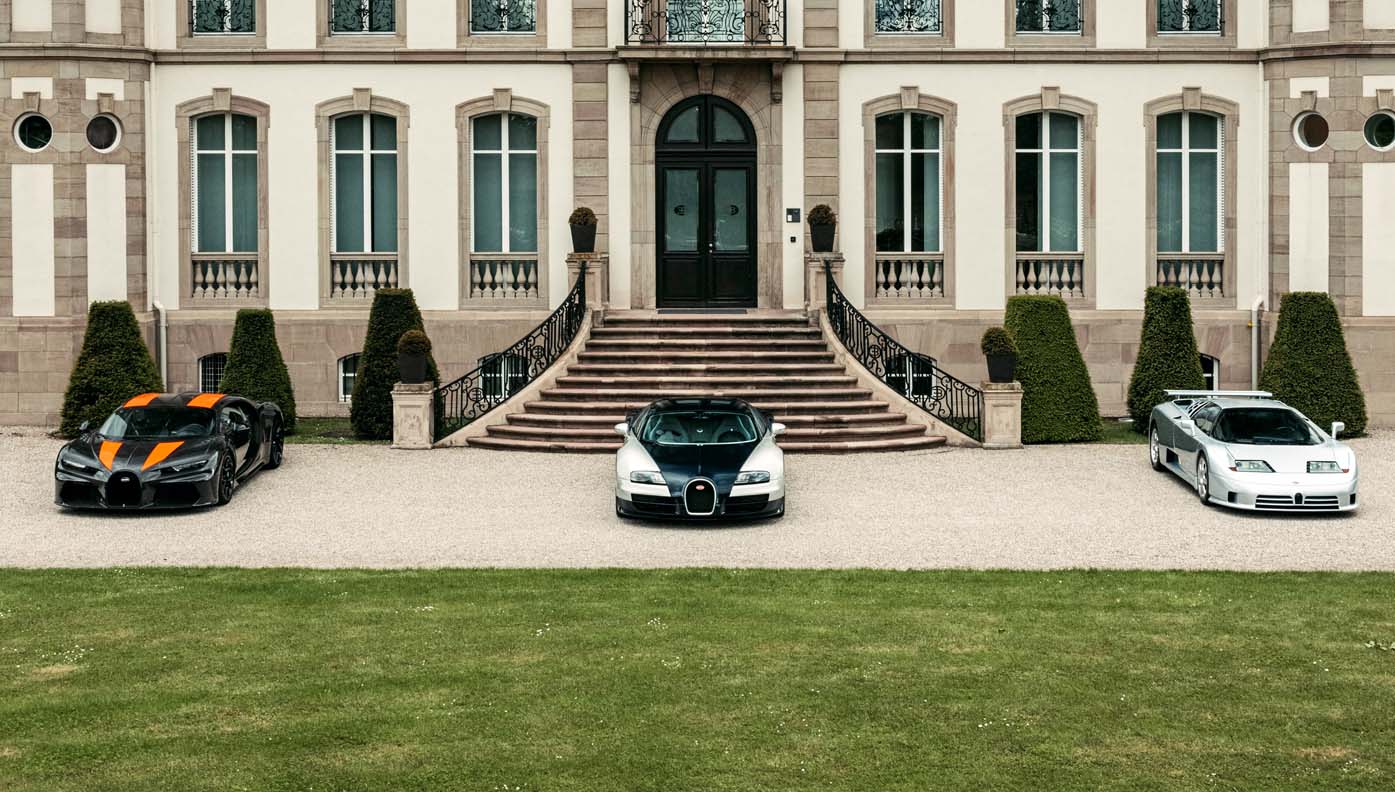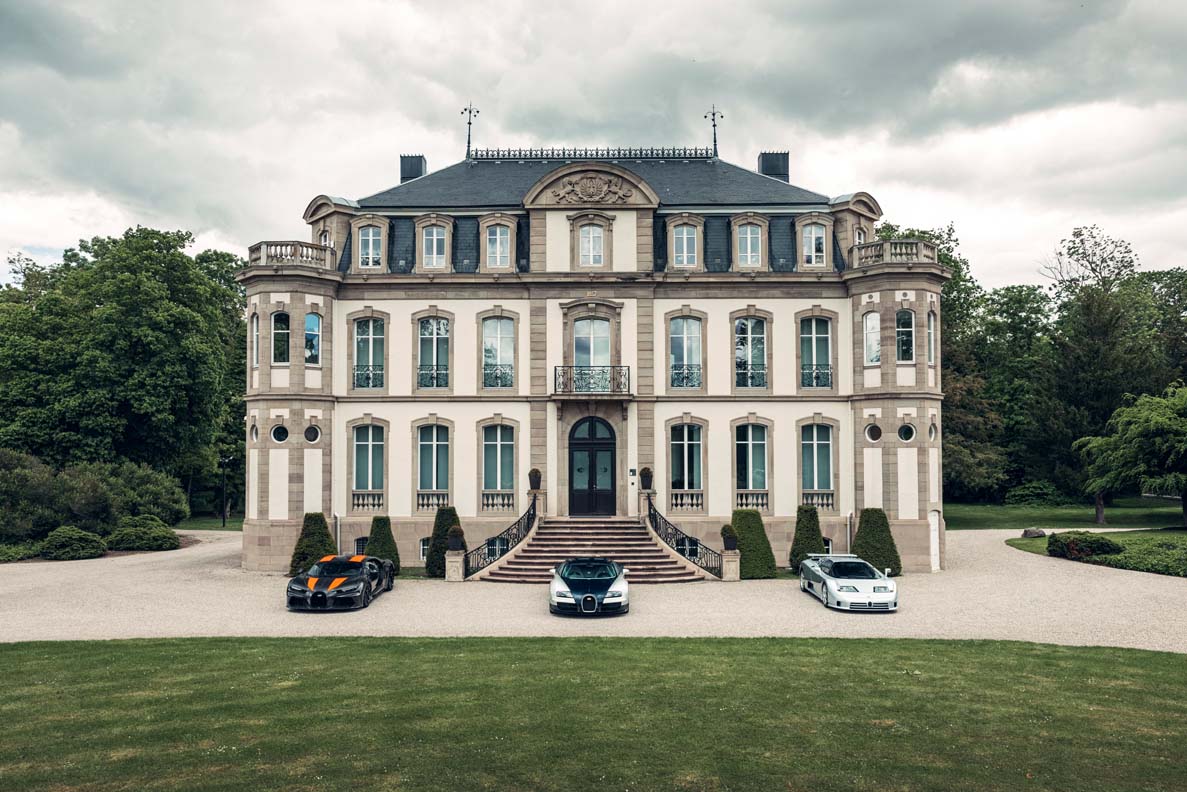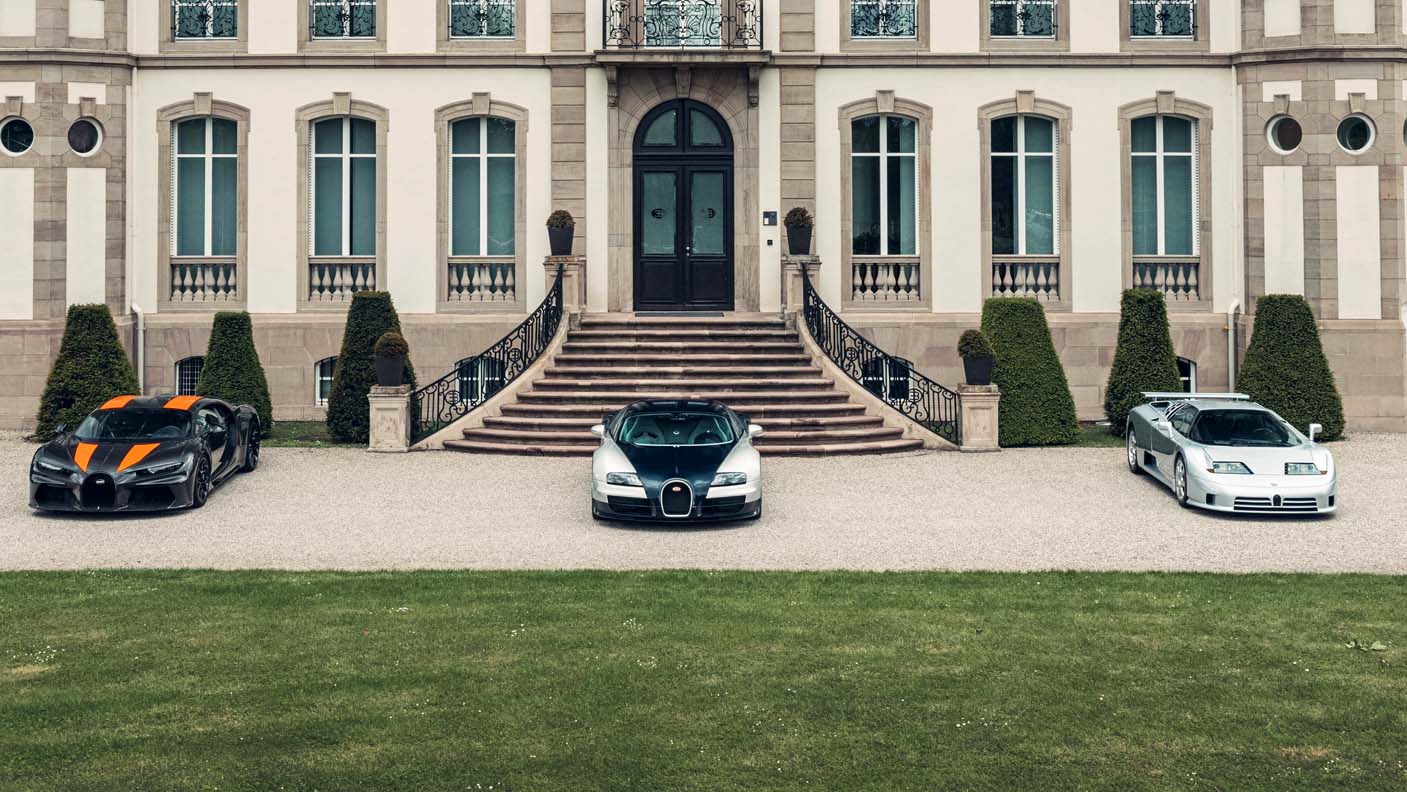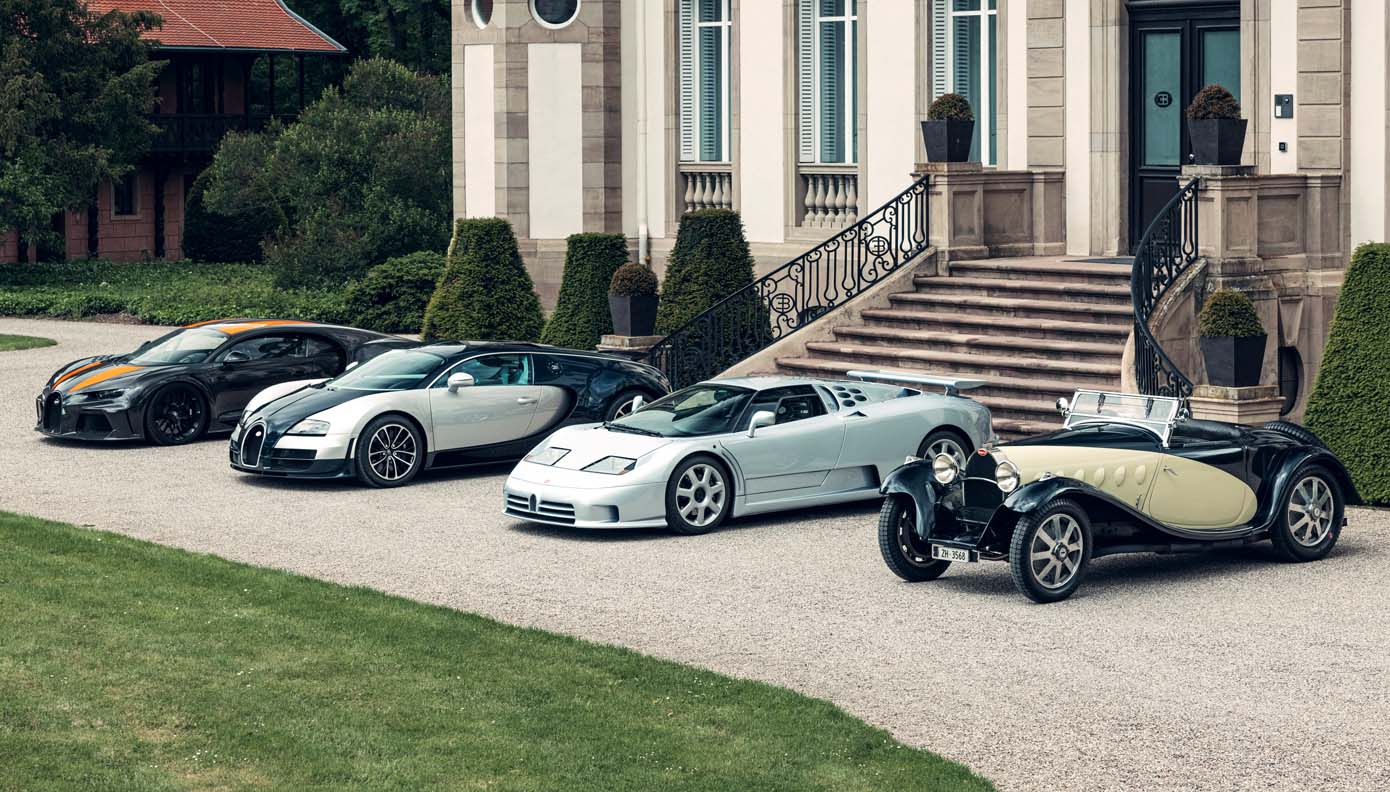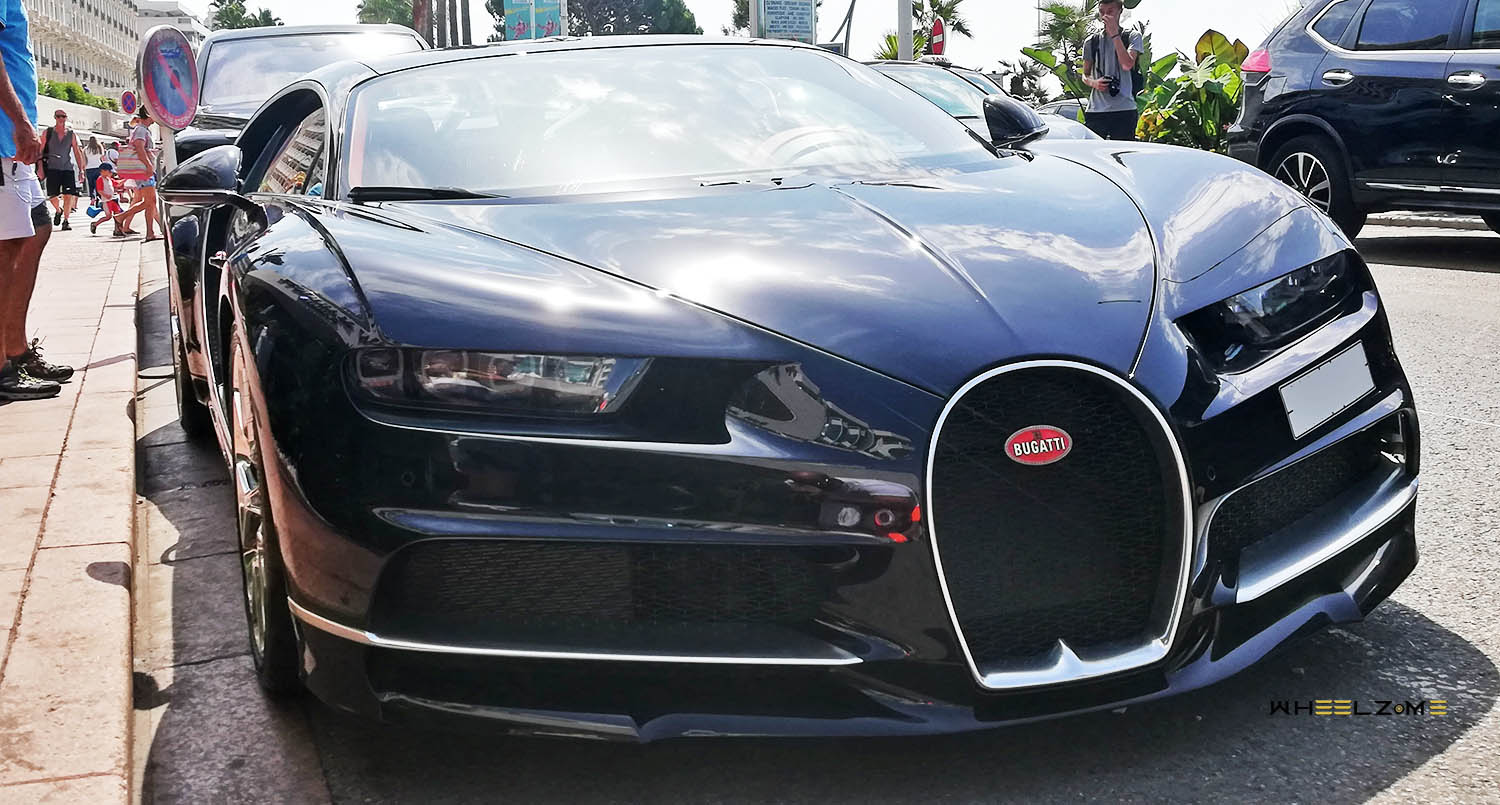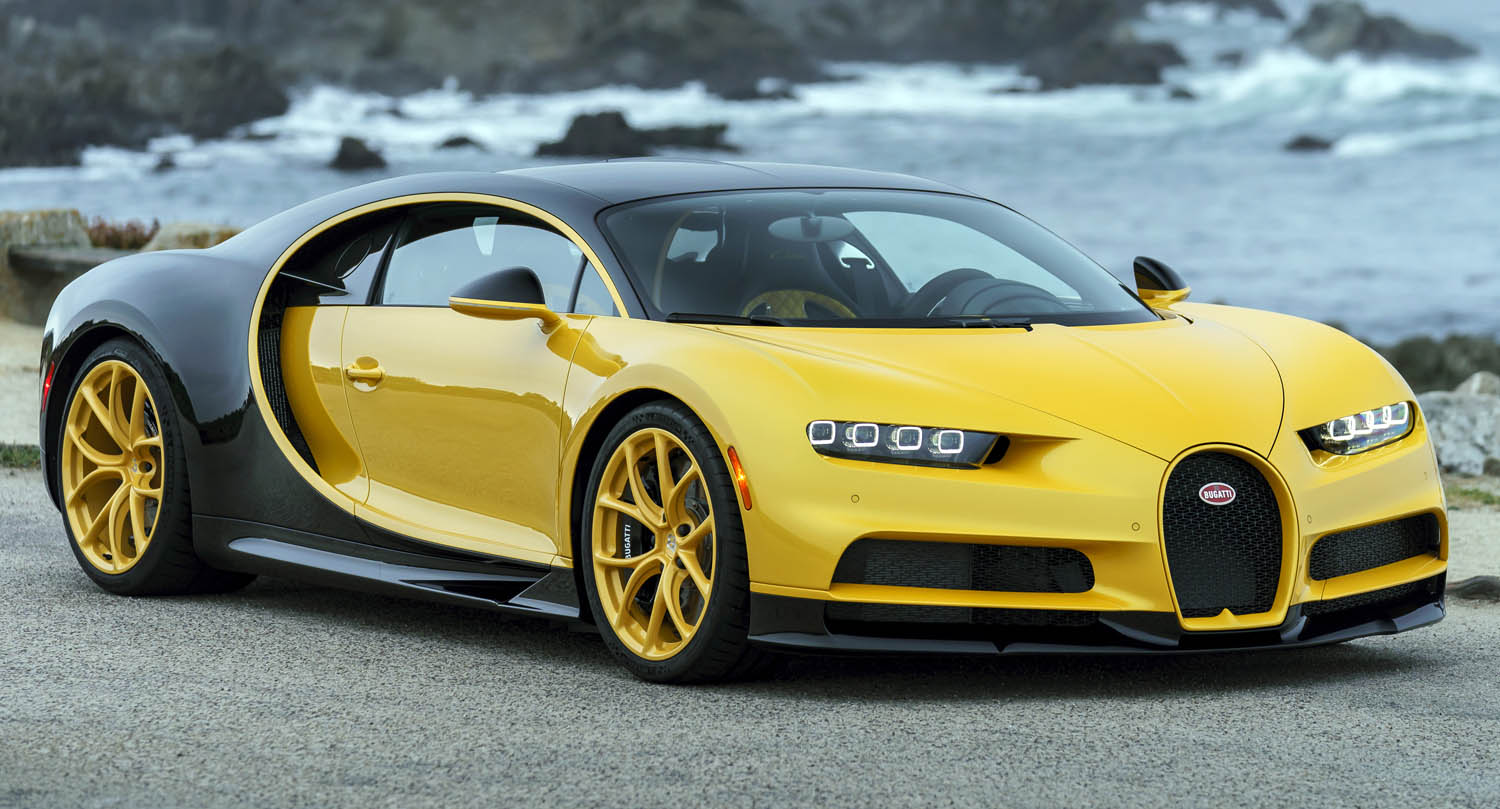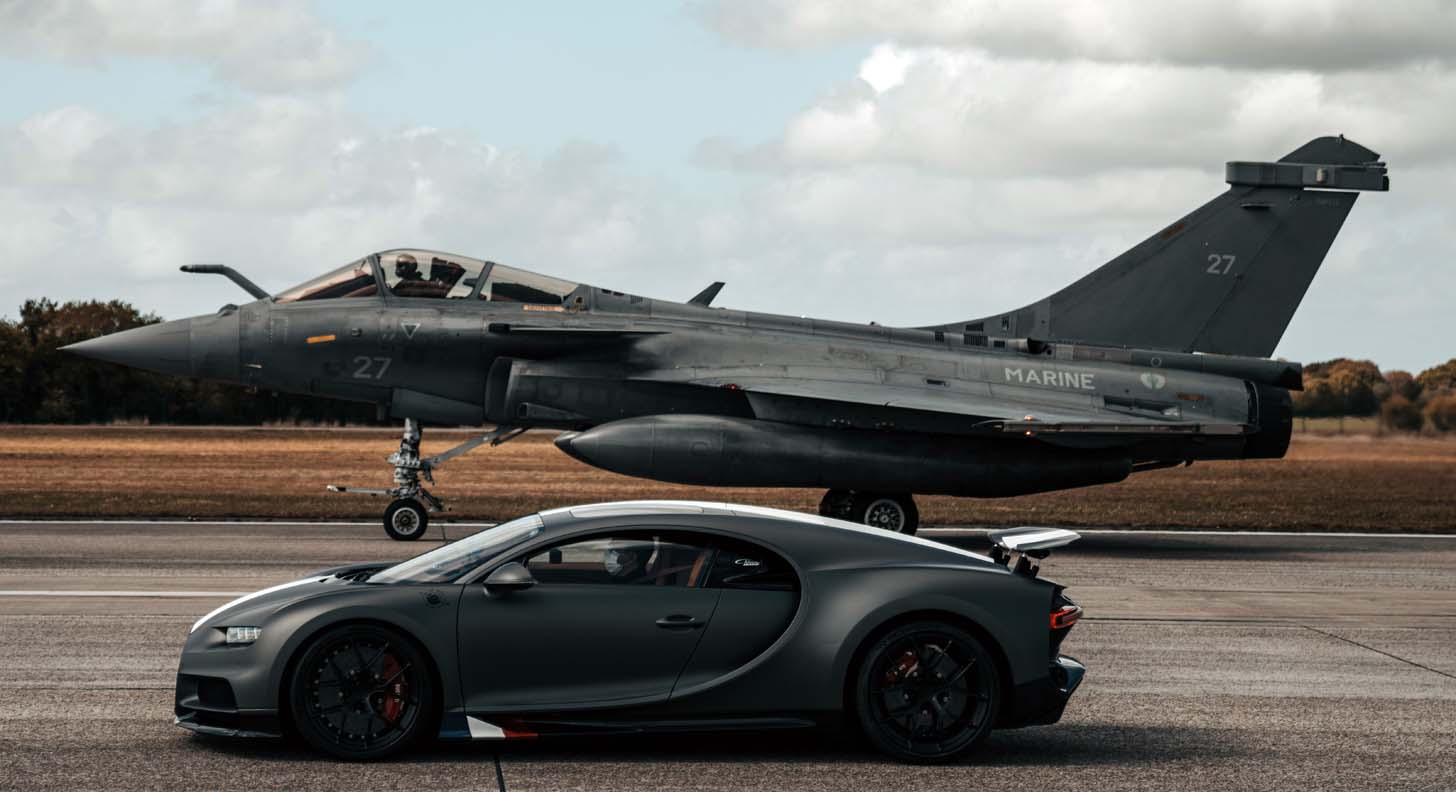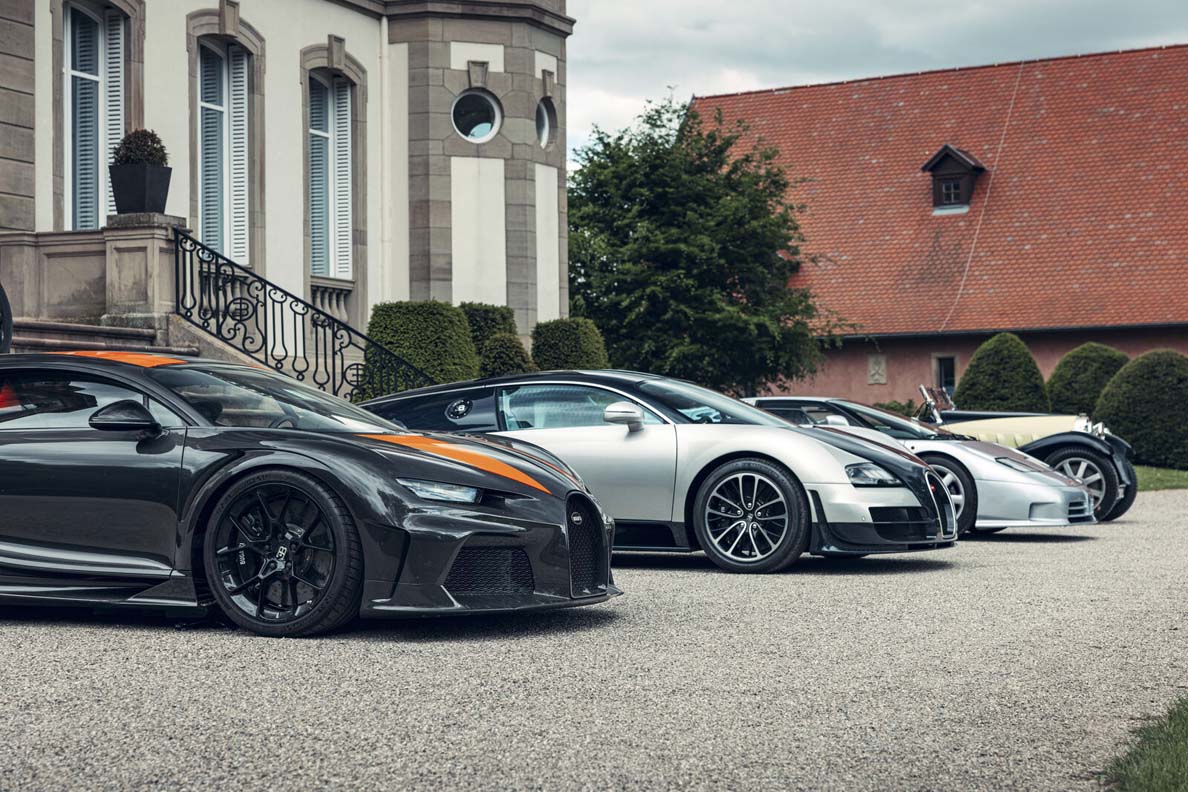
Extremely fast and yet very comfortable – with the Chiron Super Sport 300+, Bugatti is once again redefining luxurious hyper sports cars. Once again because the French luxury automobile manufacturer designed its first Super Sport some 90 years ago – the Type 55, which was created by a young Jean Bugatti. The three subsequent models – the EB 110 Super Sport, the Veyron 16.4 Super Sport, and the Chiron Super Sport 300+ – each set new benchmarks in the decade in which they appeared. The three Bugatti drivers Loris Bicocchi, Pierre-Henri Raphanel, and Andy Wallace had a significant part to play in the success of these benchmarks. They came together at the Bugatti headquarters in Molsheim to take a trip down memory lane.
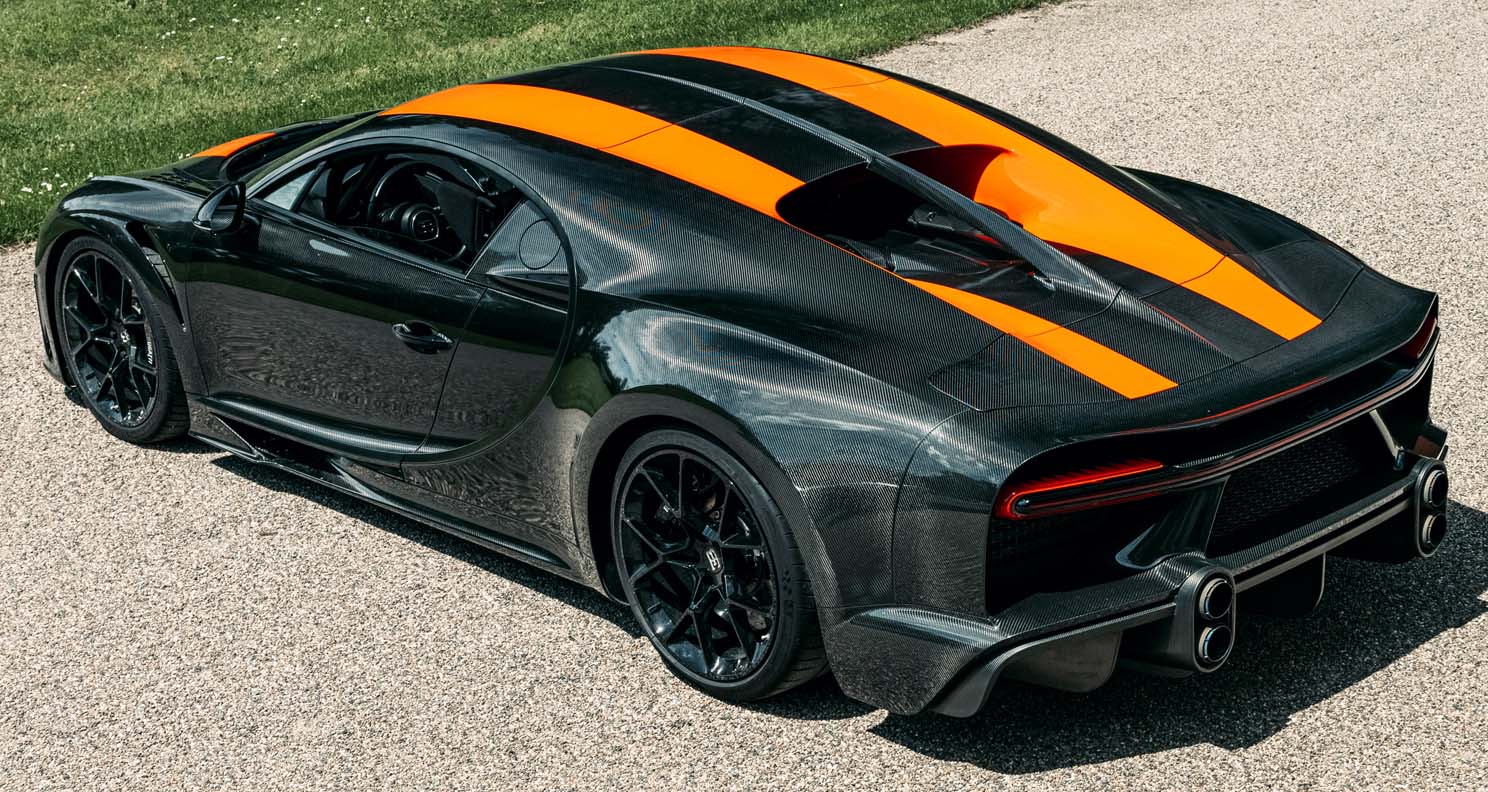
The Bugatti Type 55 Super Sport
The Type 55 is the only Super Sport of the Ettore Bugatti era. Its supercharged 2.3-liter straight-eight engine allowed the vehicle to achieve top speeds which had not been reached until then. It also boasts an elegant form, about which Bugatti historian Jonathan Wood waxes lyrical, writing that the horseshoe radiator grille is “in perfect visual harmony with the gracefully balanced lateral line that runs the length of the car… The flowing fenders give the vehicle an exceptionally elegant appearance, while the low entry point (there were initially no doors) affords comfort.” Jean Bugatti introduced a new two-tone color split for this model, giving Bugatti the inspiration for its horizontal color split in 2010 which was first offered with the Veyron 16.4 Super Sport.
The first Type 55 Super Sport was produced 90 years ago for the 1931 Paris Motor Show. There was praise from the customers and media alike in particular for the Type 55’s top speed, acceleration, and good roadholding. In its July 1932 issue, the widely read magazine Motor Sport noted that the Type 55 accelerated almost twice as quickly as the Type 43, which was lauded for its agility. It reported that the vehicle’s roadholding was in keeping with Bugatti’s usual high standards and that “cornering, of course, is effortless, and if a bend is taken too fast, the car seems to correct the error without help from the driver.” The magazine editors achieved a top speed of over 180 km/h and reported that “one glides along as in a fast airplane, with no sound but the rushing wind.”
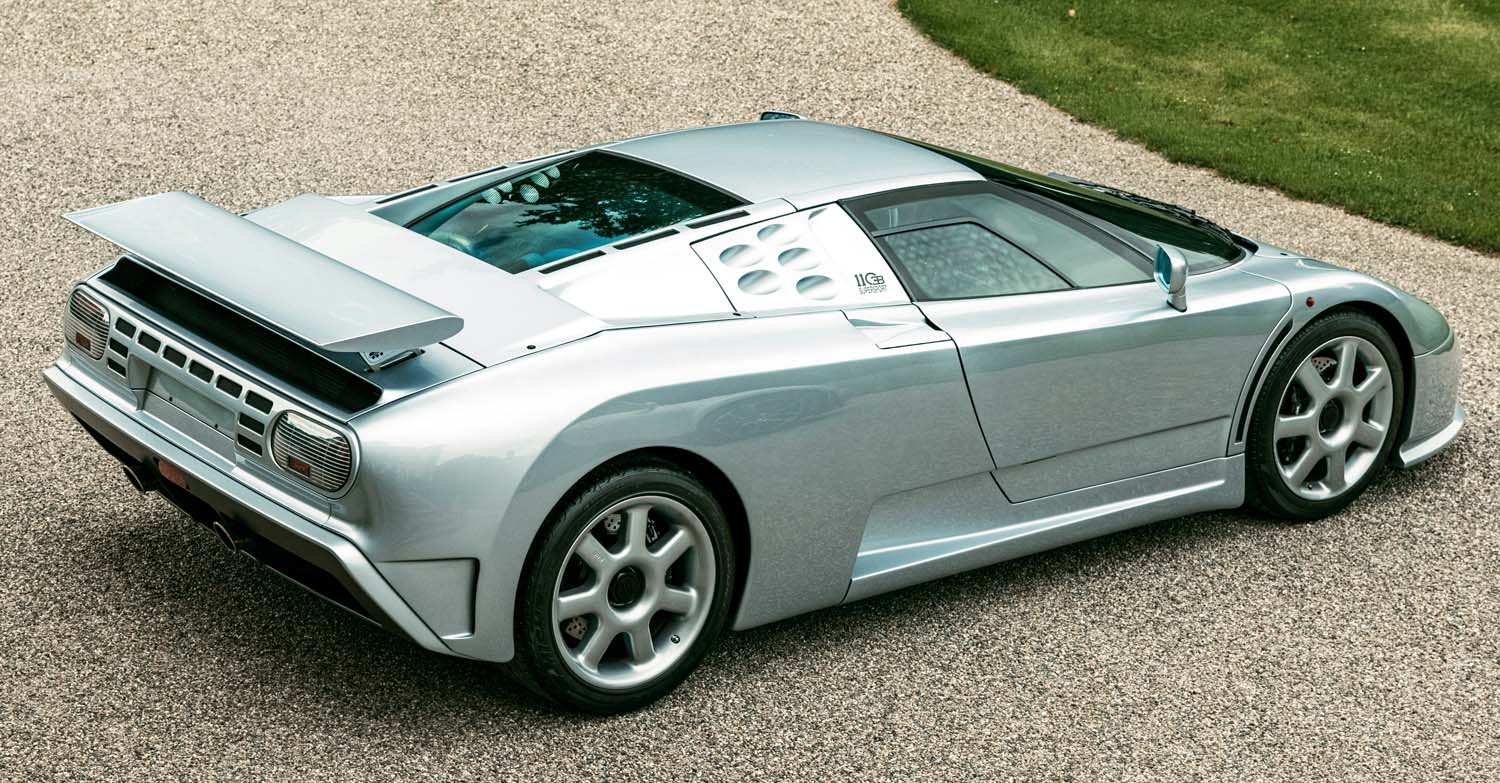
Only 38 Type 55s were constructed. Its rarity makes it all the more popular as a collector’s piece.
“With the Type 55, Bugatti manufactured its first Super Sport and undoubtedly the ultimate grand tourer of its time. With its combination of comfort and sheer performance as well as its straightforward drivability, the vehicle was well ahead of its time,” says Luigi Galli, Specialist Heritage & Certification at Bugatti. “With this vehicle, Bugatti took comfort to new s 90 years ago and defined a new vehicle category.”
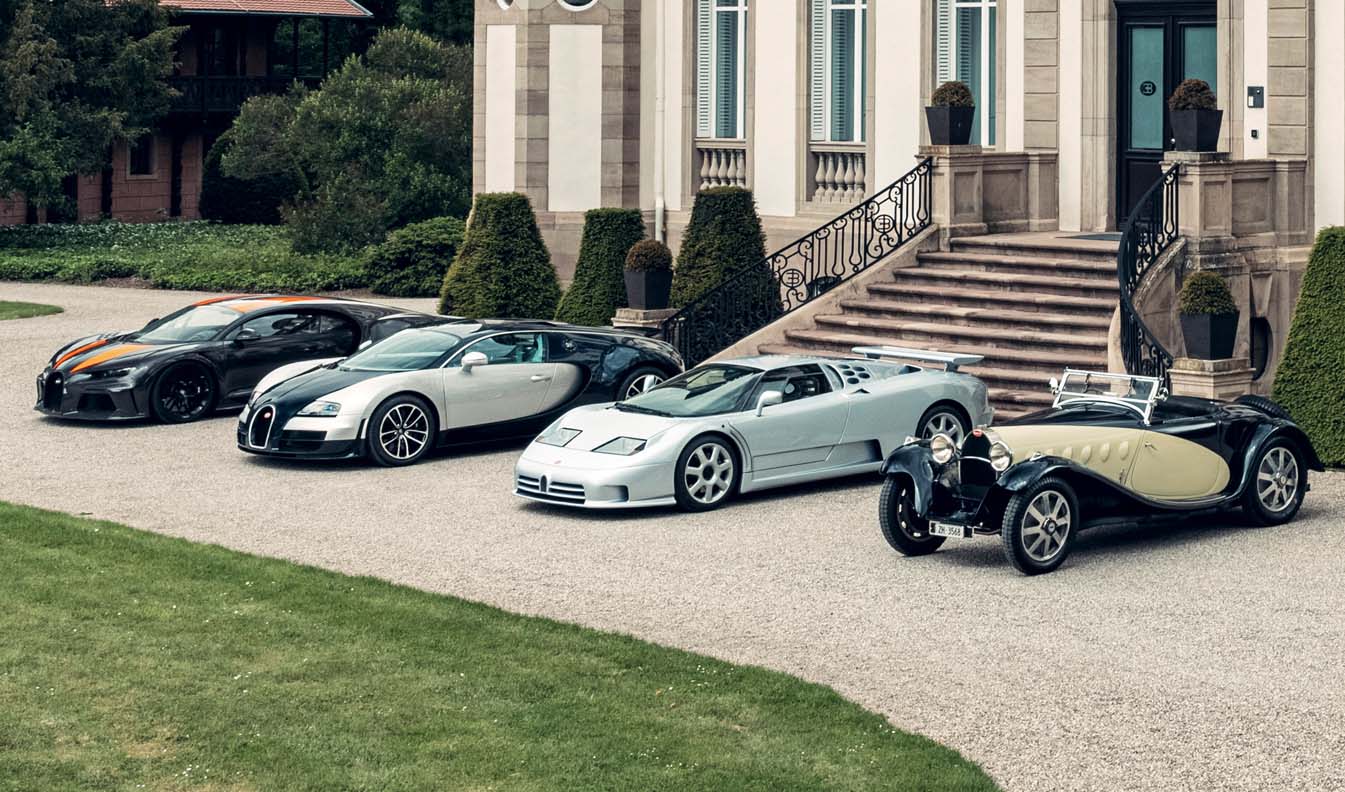
Loris Bicocchi and the Bugatti EB 110 Super Sport
“I’m still amazed at just how modern the EB 110 SS still feels to drive. It’s direct, to the point, light, and incredibly fast. It boasts good roadholding and offers top grip,” enthuses the gifted test driver Loris Bicocchi, who was involved in developing the EB 110 from scratch at the Bugatti plant in Campogalliano in the early 1990s. “The first prototypes went by the code names A1, A2, and A5, and had an aluminum chassis. Fortunately, it was then decided that carbon would be used instead, making the EB 110 the first production car with partially carbon fiber bodywork.”
The extremely light monocoque made from pure carbon weighs a mere 125 kilograms. The bodywork is made among other things from aluminum and carbon, the wheels are cast in magnesium, and the screws are titanium. It gets its propulsion from a V12 engine that features four turbochargers and delivers up to 610 PS. The power is transferred to all four wheels. Manual six-speed transmission, viscous all-wheel limited-slip differential, and rear LSD result in quick propulsion and control of the nippy vehicle.
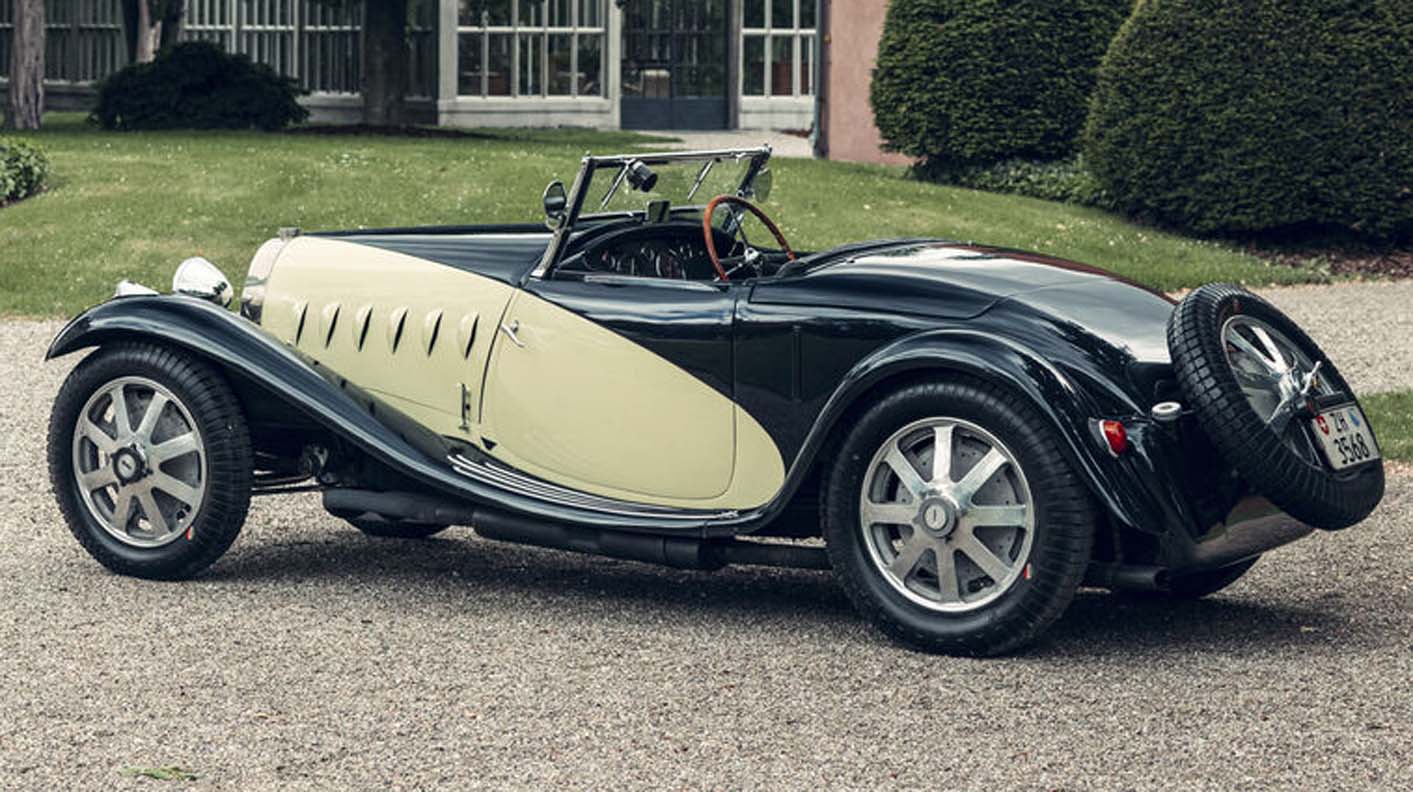
“The EB 110 boasts outstanding control and balance in spite of the immense power of over 600 PS. The chassis is agile, the steering direct, and what’s more the EB 110 offers a great deal of comfort, even on longer journeys,” says Loris Bicocchi, who spent virtually every day in the automobile from 1990 to 1995. “It was the best time of my life,” he says, looking back.
Indeed, he helped develop the best super sports car of the early 1990s. The EB 110 was in a league of its own and broke speed record after speed record – 351 km/h in Nardò, 296 km/h on ice, 342.7 km/h running on CNG, and from 0 to 100 km/h in 3.26 seconds.
Between 1993 and 1995, approximately 96 EB 110 GTs were produced in the workshop as well as the lighter and more powerful 39 EB 110 Super Sport with 610 PS.
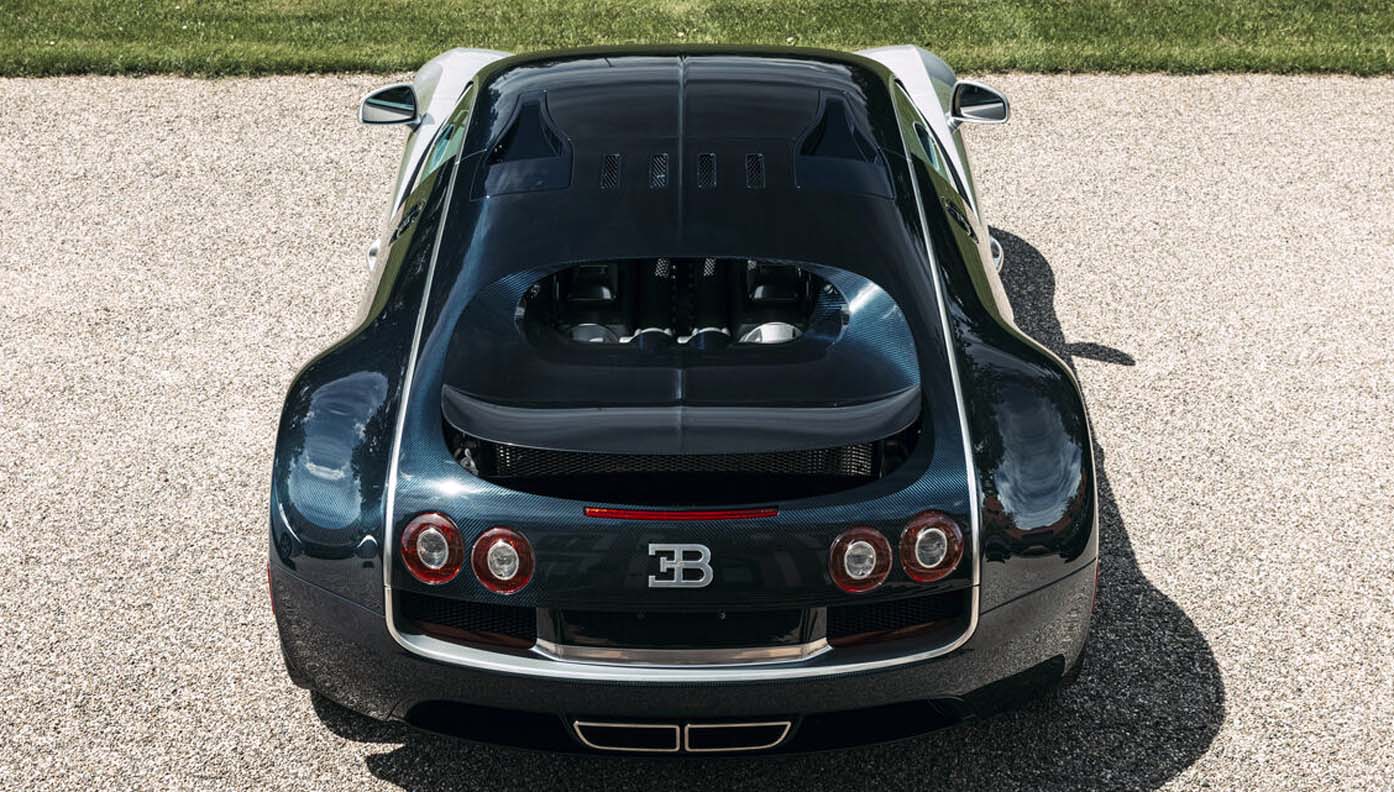
Pierre-Henri Raphanel and the Bugatti Veyron 16.4 Super Sport
“I will always associate the Veyron Super Sport with a very special moment in my life. I clearly remember not being able to sleep all that well the night before I set the record. But when I woke up at 4:27 a.m., I took it as a sign … and the rest is history,” says Pierre-Henri Raphanel, Bugatti’s pilote officiel, multiple entrant in the 24 Hours of Le Mans, and Guinness world record holder of many years. In June 2010, he set a speed record for road-legal series sports cars in a Veyron 16.4 Super Sport, hitting an average speed of 431.072 km/h – 427.933 km/h on the first run and 434.211 km/h driving in the opposite direction.
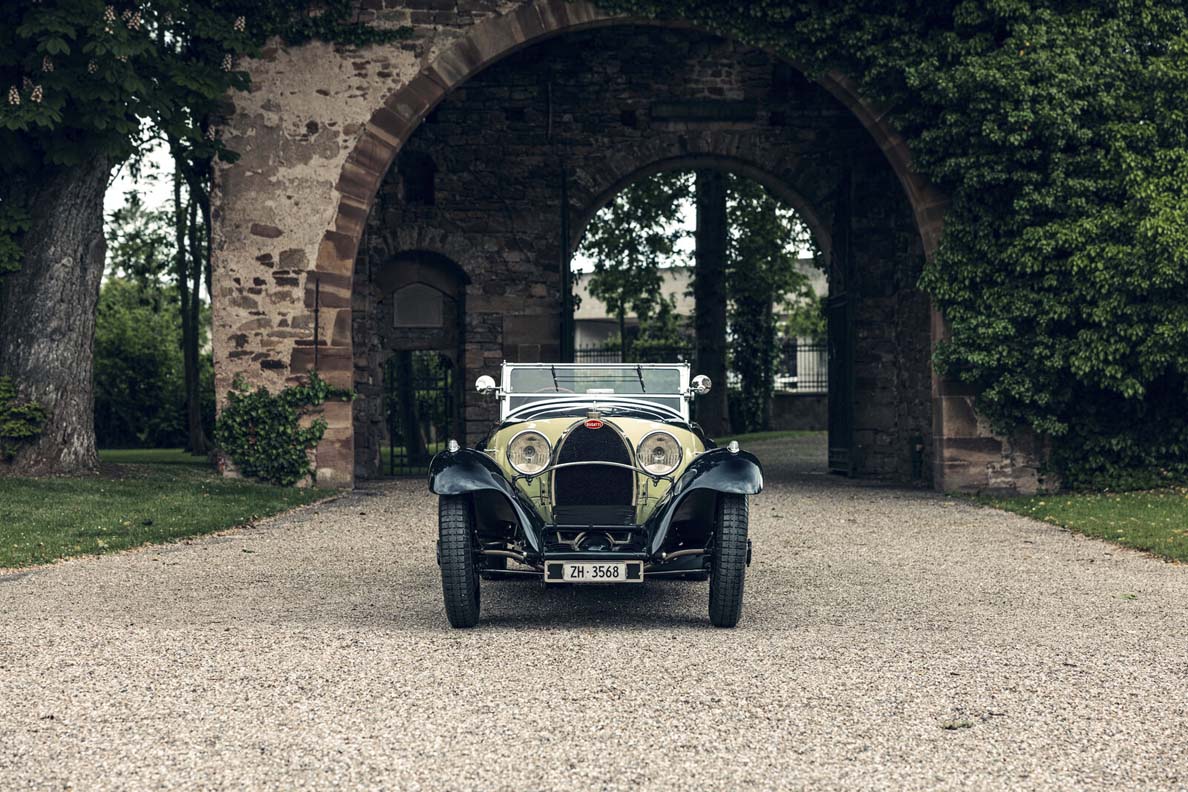
Bugatti wrote automotive history once again when the Veyron 16.4 was rolled out in 2005. “I had the good fortune to be Bugatti’s first pilote officiel and to introduce this hyper sports car both to the media and customers. Their reactions were incredible – they felt like they were on a roller coaster with wheels, as one media outlet put it,” remembers Raphanel. The Veyron heralded a new era in the new millennium and catapulted super sports cars into a new dimension. The newly developed 8.0-liter W16 engine had initial output of 1,001 PS and torque of 1,250 newton meters, enabling the coupe to accelerate from 0 to 100 km/h in 2.5 seconds and to hit 200 km/h after 7.3 seconds. Its full power is transposed to the road by all-wheel drive.
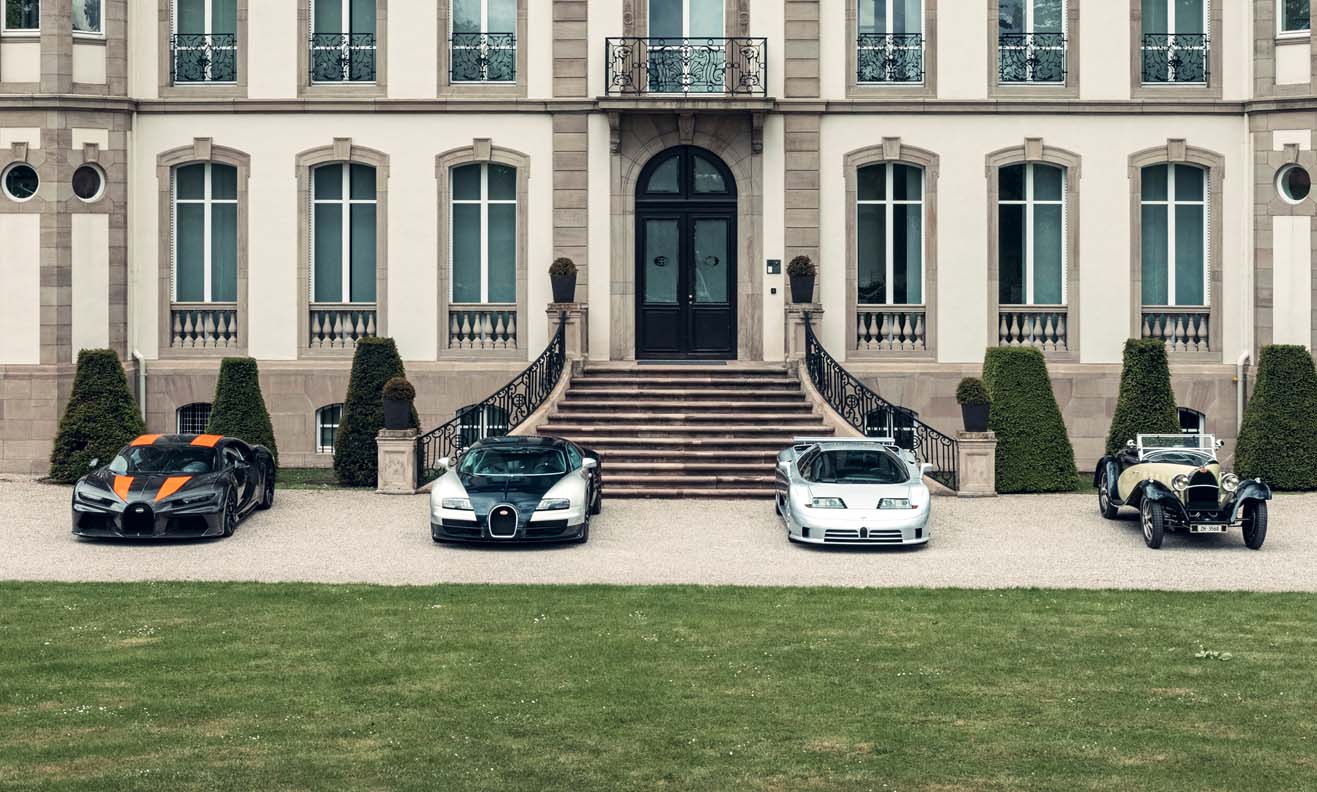
“Improving such a masterpiece and achieving the kind of incredible enhancements that Bugatti managed with the Veyron 16.4 Super Sport was inconceivable at the time,” relates Raphanel. The mighty power train is raised to an incredible 1,200 PS and enables the coupe to accelerate from a standing start to 200 km/h in just 6.7 seconds, with a regulated top speed of 415 km/h. “It’s still an extraordinary vehicle. In addition to its incredible power development, its perfection lies in its easy drivability and quality workmanship,” the world record holder enthuses. Just 450 Veyrons were produced at the Atelier in Molsheim up to 2015, 48 of which were Veyron 16.4 Super Sports.
Andy Wallace and the Bugatti Chiron Super Sport 300+
“When I first heard about the idea of my breaking the sound barrier of 300 mph with the Chiron Super Sport, I was pretty nervous. But I became less nervous with every passing day because the Bugatti engineers succeeded in implementing my feedback 1:1, so we were able to continuously optimize the car. The Chiron Super Sport 300+ now drives very precisely and easily even at speeds upward of 400 km/h. And even after eight hours in the car, you still feel like you are sitting in a comfortable saloon,” says Bugatti’s pilote officiel Andy Wallace, describing his experience with the Chiron Super Sport 300+.
In September 2019, the time had come, and Andy Wallace was the first driver to pass the 300 mph mark, driving a Chiron Super Sport 300+ and hitting a speed of 304.773 mph (490.484 km/h). “The acceleration of a Chiron2 is incomparable. And with the even more powerful Chiron Super Sport 300+, it feels like the incredible thrust will never end. It’s simply full speed ahead,” says Wallace.
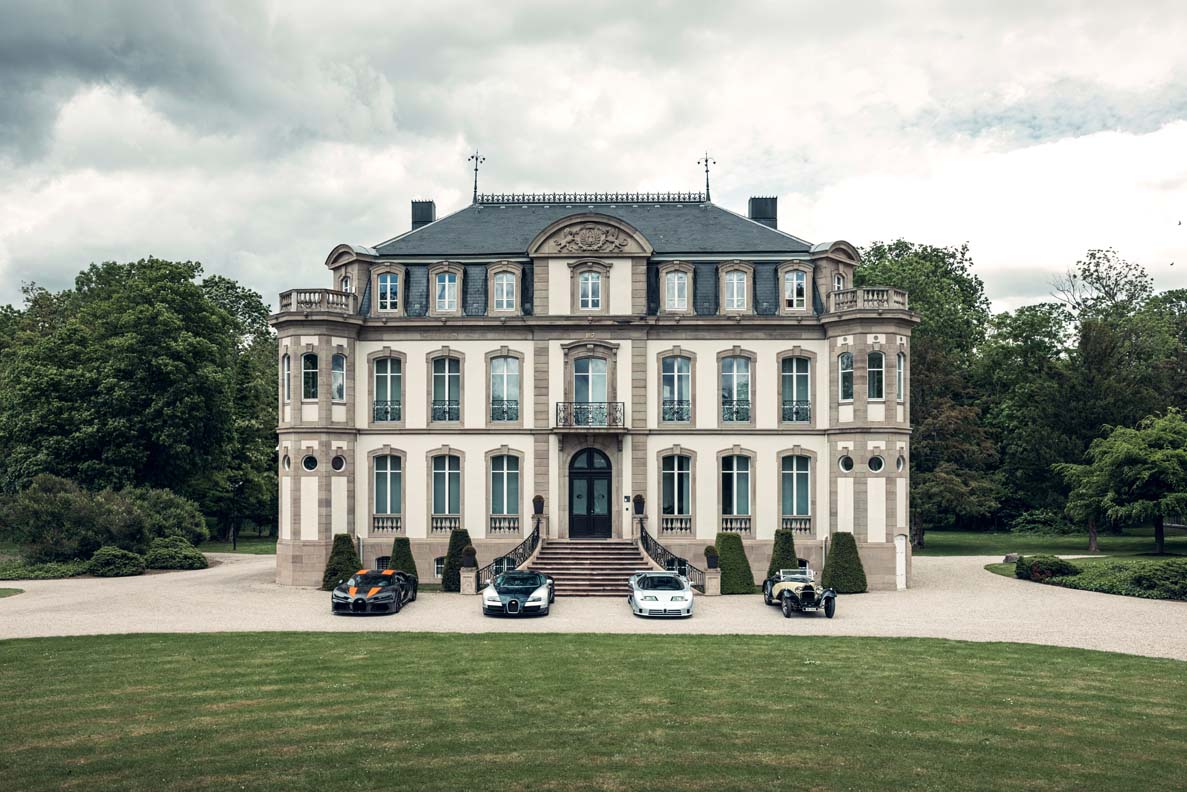
With the Chiron, Bugatti presented an entirely new hyper sports car, starting in 2016. The 8.0-liter W16 engine delivers 1,500 PS of power and torque of 1,600 newton meters. And at 1,176 kW/1,600 PS, the Chiron Super Sport 300+ surpasses the Chiron by 100 PS, making it the most powerful Bugatti ever constructed. Visually, the Chiron Super Sport 300+ differs from the Chiron first and foremost due to its extended and aerodynamically optimized bodywork, which is designed for extreme speeds past the 420 km/h mark. The special Super Sport 300+ edition produced in a limited run of 30 consists of jet black visible carbon fiber bearing two orange racing stripes that extend from front to back over the entire bodywork of the hyper sports car.
“The Veyron was already in a class of its own and still drives fantastically to this day. The Chiron succeeded in entering entirely new physical dimensions and in further pushing the boundaries of what’s technically feasible. It’s incredible how Bugatti pushes the fastest and most luxurious automobiles to such perfection and such top performance,” explains Andy Wallace.
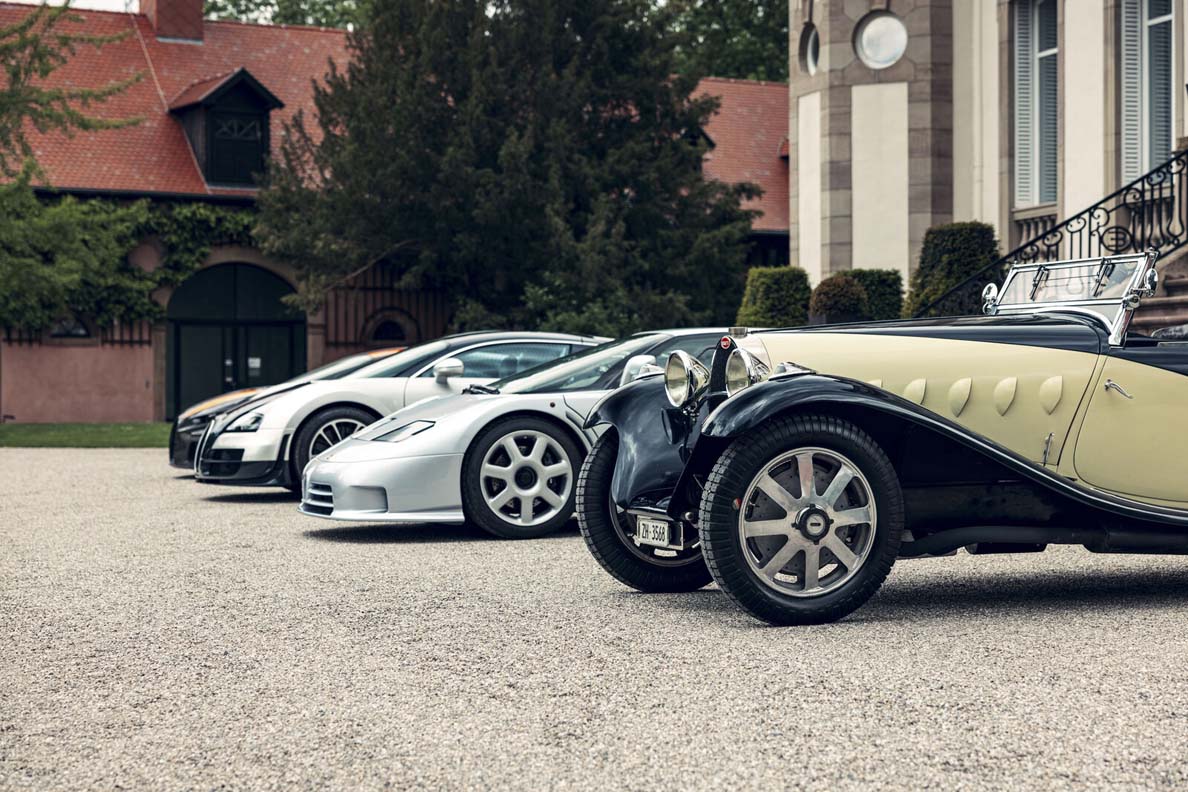
The former race car driver and Le Mans winner has been presenting the latest Bugattis to potential buyers since 2011 and has also been assisting the development team since 2015. He has already racked up more than 100,000 kilometers in the luxurious hyper sports car from Molsheim and regularly provides the engineers with feedback. For him, the Chiron Super Sport 300+ is more than just the world’s fastest series sports car. It is also a testament to technical finesse, very high-quality workmanship, and a real passion for detail. And it won’t be the last Super Sport in the long history of Bugatti.
